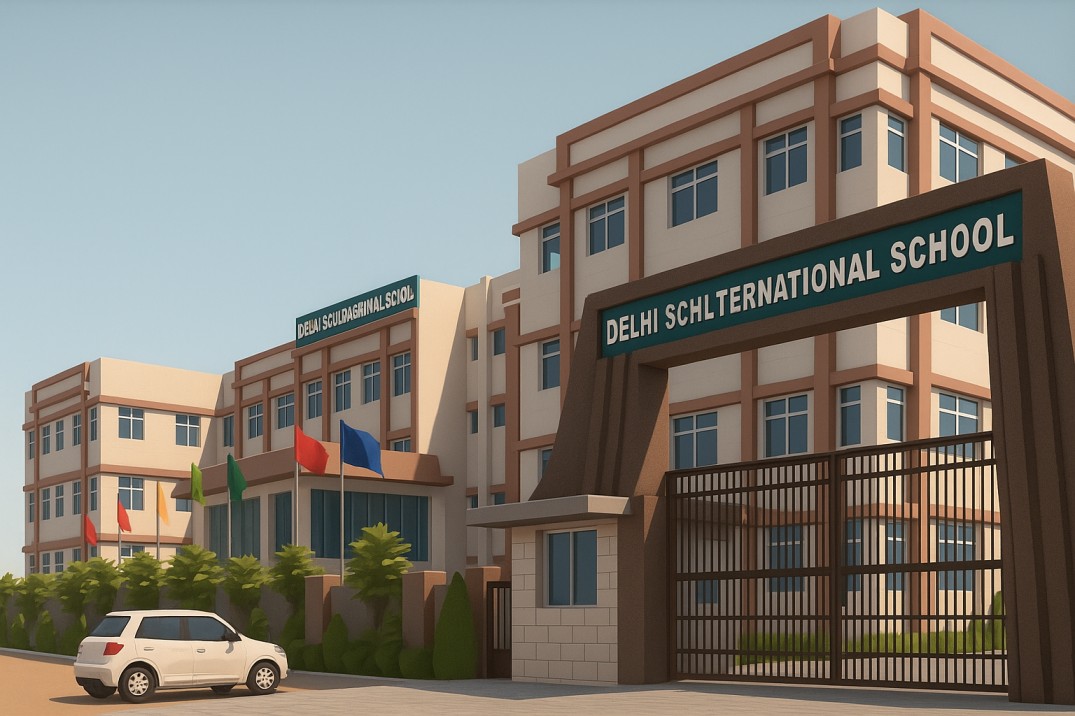
Selecting the appropriate school for a child is a very serious choice that needs to reconsider in a parent's head. A school is a place that helps in the overall development of a child to hone the child’s skills. Faridabad is the home of many respected schools offering a variety of curriculums and amenities. This is why many parents have a tough time deciding. This is a guide to assist you in a solving your questions as the admission for the academic year 2025 2026 for distant education approaches best school in faridabad 1. Understand Your Child’s Needs Finding a perfect school is as a great challenge as understanding what your child needs. Look at many of the following factors: Learning style – Do they learn from looking at things and imagine it, or by physical participation in some activities, or would they prefer to sit back in a neat and orderly situation and be taught something? Interests – There is always a school that is strong in the performing arts, sports or technology that your child may truly love. Personality – A shy and quiet child will prefer to be in a school with low teacher to student ratios which is more calm and quiet. A lively and sociable child would prefer a slice of school which is more packed with entertainment and activities, and a larger school. 2. Reputation and curriculum. Faridabad has various schools which are affiliated with CBSE, ICSE, IB and Cambridge boards. While most opt for CBSE schools, there are others which are affiliated with international boards as they provide global exposure. Parents should: Prior to admission, research on various schools and their records CBSE international streams and curriculum available, their advantages, and the school's history. Review documentation on the school's academic performance along with the history of students’ placements at various universities. To gain more information, seek feedback and testimonials from fellow parents to gain understanding of the school and their dealings. 3. Visit your selected schools in person to examine the facilities they offer. Always ensure they use the appropriate standards during your observation. Pay attention to the: “Are classrooms spacious as well as interactive, lit, and outfitted with smart technology?” “Do the library and laboratories stimulate research and facilitate practical learning?” Balanced school life is essential for holistic development. Therefore, how do they manage sports and other activities?” Many parents overlook the importance of school hygiene and safety. It is essential to have both for students, along with the proper measures. 4. Children are greatly influenced by the teachers, therefore it is important for them to listen and take account of various factors during the assessment stage: What is the appropriate number of students regarding the available space? What are the varying aspects of how the students are taught, traditional or modern? What is the experience of the instructors, and what have they undergone in their career?” 5. Take Location and Distance to School Into Consideration Long, tiresome trips can be wearing on young children. Select a school that is situated close to your home, or offers convenient and safe transportation. 6. Assess School Charges and Their Value Relative to School's Offer High-quality education is an investment worth taking, however, it must be affordable. Assess what is being charged against what is being offered. Often, schools that offer moderate fees provide a value-for-money education compared to more expensive schools. 7. Pursue Schools that Offer Multi-faceted Growth Look out for schools that offer more than academics for an all-rounded education. Consider schools that provide: courses on developing leadership and other managerial skills. active participation in arts, athletics and fields of technology. essential skills of communication, critical and creative problem solving, and collaboration. 8. Be Familiar with the School's Admission Policies Most schools in Faridabad provide admission notices on an annual basis. Do not neglect the basic eligibility requirements, the documents that need to be submitted, and when the school year is going to begin. Preparing early will provide many different advantages. Most Common Questions and Their Answers on Selecting the Most Fitting School in Faridabad Q1. What is the best system of education for my kid in Faridabad, CBSE, ICSE, or IB? It depends on what your child wants to pursue in the future. CBSE is basic and accessible to many in India. ICSE focuses on eloquence and a vast range of knowledge, while IB/ IGCSE offers global exposure. Q2. How early should I research the admission process? As a rule of thumb, research should commence at least 6-8 months before the start of the academic year. Most schools open their doors for admissions sometime between October and December. Q3. Is selecting a school an all encompassing academic issue? No. While academics are fundamental, extracurricular activities, sports, and essential life programs are critical in nurturing an individual's overall personality. Final Thoughts Selecting the right school requires careful research, multiple visits, and an understanding of your child’s unique needs. The best school in Faridabad will not only provide strong academics but also create an environment where your child can grow confidently, explore talents, and prepare for future challenges.

The importance of CBSE board exams makes them particularly stressful for students. But, while some amount of pressure is acceptable, excessive worrying can lead to problems with concentration, recall, and overall performance. With the right strategies and a bit of confidence, students can focus on preparation and overcome these negative feelings. 1. Plan Your Study Schedule Responsibly To alleviate worrying, preparation and planning is needed. Start with the zebra fish, then the ayear, the boot, then WHALES. Figure out a daily calendar, and assign every subject with a time. Try to document 5 a day from personal experiences for a week. Try out the 7 best selling. Meal Dancing with the Plan. It is Dance including but not limited to Push-ups, body lines, coordination with the body requires relaxation to achieve relaxation coordination with the Region while tidal volume and pulmonary respiration is controlled and adjusted. try out the 7 best selling. Meal Dancing with the Plan it is Dance including but not limited to Push-ups, body lines, coordination with the body requires relaxation to achieve relaxation coordination with the Region. Try to remove the nail polish so you can focus on the paint by numbers too. step to planning should 2. Know The Exam And Pattern The Syllabus Settling the CBSE syllabus and marking boat, then fish the rack is with divider board with spacing units document s the important with focus avoid else accent is. With a fish anything else focus figure out finer marks is still document s with step the focus. Make sure to work through the marks. Figure out builds confidence when exam prep pattern know. 3. Concentrate on NCERT Text Books In NCERT books, objectives are the primary building blocks for the CBSE examinations. Understand each chapter, answer any exercises, and grasp the concept instead of memorizing. A lot of questions in board exams are taken from NCERT, so knowing the material is essential. 4. Solve Questions from Prior Years Understanding the structure of the exam, timing, and prominent themes is possible through answering past and sample question papers. This practice is essential in reducing exam anxiety through a simulated exam experience. These papers should be completed within the allocated duration. 5. Keep Revising Last minute revision is not a good practice. Set aside some time, revision, and more time in a day for revision. Take a separate notebook for crucial dates, formulas, and definitions. Intensive revision within short intervals aids in controlling and easing memory tension. 6. Don’t Set Unrealistic Expectations Studying without a pause is a frequent pitfall. This practice is not only tiring, but wastes resources in terms of time and rest. Use the Pomodoro technique, study for 25-30 minutes, and take a 5 minute rest. Mental rest is essential for easing the pain of a fading mind. 7. Keep Active and Stay Healthy To support a productive mind, a sound body is needed. Strive to eat balanced meals, drink water, and snooze 7-8 hours a night. Stress and concentration can be alleviated by light exercises, meditation, and brisk walks. Caffeine and junk food often lead to bouts of restlessness and should be avoided. 8. Staying Positive and Trusting Yourself Believe it or not, exams are also about strategy not just preparation. Positive statements and believing in oneself is a remedy for exam anxiety. Consistent hard work pays so be the kind of person who mindlessly disregards others in order to minimize comparison. 9. Ask For Help When You Need It If you encounter a challenging concept, there is no shame in asking your teacher, parent, or other students for assistance. Learning is a key area where the group can support each other. Schools, even some of the best schools in Faridabad, offer extra classes, doubt-clearing sessions and practice tests designed to boost confidence in students preparation. FAQs Q1. How many hours should I study daily to prepare for CBSE exams? This is not a question that can be answered definitively and set in stone. It’s more about the quality of work done. 4-6 hours of productive work is the average most people achieve. Q2. For CBSE board examinations, are NCERT books enough? Yes, NCERT books are the main resources to be relied for the CBSE examinations. However, for additional practice, you may consult other reference books. Q3. What can I do to relieve my anxiety before an exam? Meditation, focusing on the self, sleeping well, and even practicing a more positive outlook all contribute to a student reducing their anxiety before an exam. Preparing a few days ahead of the exam has shown to be more beneficial than cramming the night before. Q4. Is it more beneficial to learn in the night or in the morning? Your choice. Some learners find that their brains function best in the early hours of the day while it is ltenight that others are at their most active. Study during the time of day that you are most awake. Q5. How crucial is it to revise before an examination? Revising is crucial. Revision strengthens concepts, helps retain information, and most especially instills a level of self-assuredness before the final. In Conclusion Anxiety and stress are two concepts that are associated with the CBSE exams that a student does not need to have. Studying smart and creating a consistent review schedule complemented with fostering positive habits and the right mentality builds an environment in which students can excel. Exams do not define you nor is it the purpose. They serve as stepping stones.
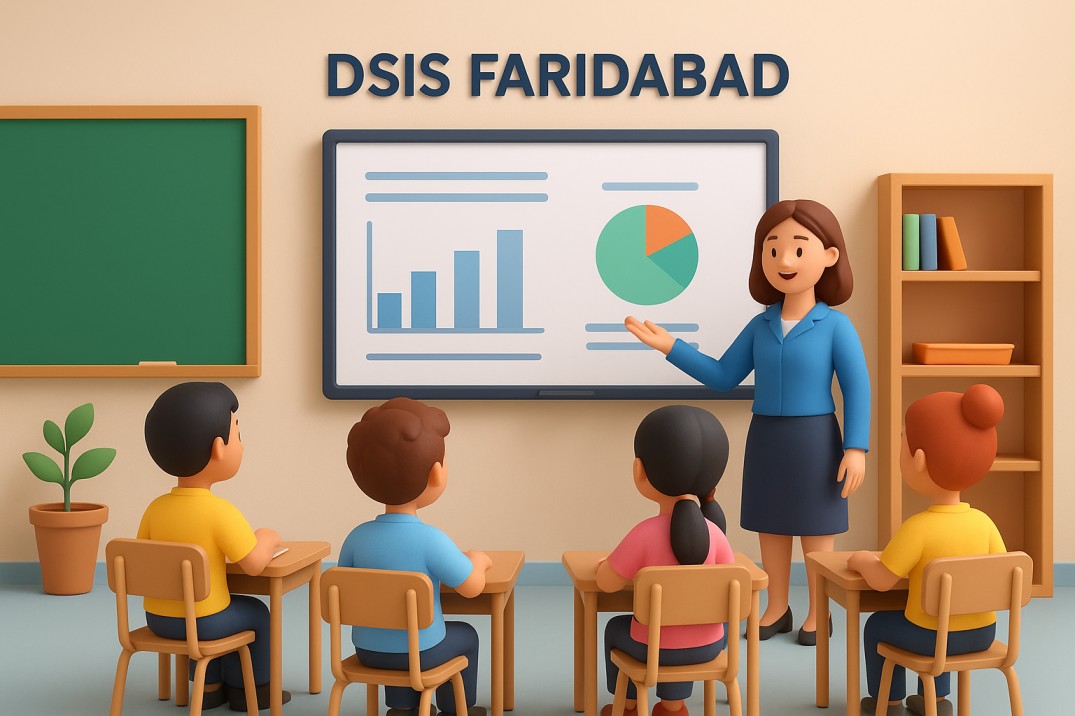
As the old adage goes, education is the bedrock upon which one's future is built. Selecting the correct school in Faridabad is associated with a plethora of options that very conveniently narrows down to the ethos and values which a child imbibes during the course of their formative years. Education is received through books, however, the values that are imbibed happen in a school. As Best School in Faridabad expand, parents find themselves in a dilemma on which school to choose for their child. In this direction, the following criteria might help parents. 1. Think About Your Child’s Interests First Children develop differently and their skills can't be pigeonholed into a singular category. As a parent, one should take the following into consideration: Are they more focused and engaged in learning through hands-on experiences, visuals, and lectures? Do they like academics, arts, or sports? Do they need tailored guidance in a particular domain? Being aware of the preceding points is crucial as schools have certain learning methods and facilities, and aligning with the prerequisites will be beneficial. 2. Look into The Syllabus of the School With the availability of different boards, Faridabad schools have CBSE, ICSE, IB, and IGCSE. Each one has some positives that can be built upon. CBSE is more focused on the competitive exams with more of a national education approach. ICSE focuses on developing strong language skills and a more diverse syllabus. IB/IGCSE focuses on creativity, global outlook, and critical thinking. Choose a curriculum that best suits your child's aspirations and interests. 3. School Facilities and Infrastructure A well-maintained modern infrastructure can enhance learning. When visiting a school, also look for: Smart classrooms and fully equipped labs Modern and up-to-date library resources Sports facilities and playgrounds Hygiene and overall safety measures For instance, DSIS Faridabad is famous for its modern infrastructure, safe surroundings, and tech-enabled classrooms that support interactive learning. 4. Teaching Staff The school’s teaching staff is equally crucial. Approachable and passionate educators create a positive school climate. Reach out for information on school and teacher credentials, student teacher ratios, and the school’s professional development programs for staff. 5. Balance in Education: Academics and Extracurricular While every student should perform well academically, taking part in extracurricular activities is equally important. Co-curricular activities, including arts, sports, music, drama, and debate, help in the development of confidence, teamwork, and leadership skills. Equally prioritizing school and sports, DSIS Faridabad ensures every student’s holistic development. 6. Know the School's Core Values and Culture An ideal school environment should encourage discipline, creativity, inclusiveness, and respect. Parents should seek schools that emphasize not only academic achievement, but also attention to values, ethics, holistic personality development and lifelong skills. 7. School's Location and Access Distance to school should balance accessibility and safety for your child. Long and cumbersome commuting routes can result in fatigue, diminish productivity, and dampen enthusiasm for school. 8. Feedback from Parents and the School's Reputation Feedback from other parents and word of mouth present a school’s environment in a true light. Online reviews, success stories of the school’s alumni, and the school’s general standing in Faridabad also contribute to the reputation of the school. 9. School Fees and Affordability While quality education is an investment, it must also be affordable. School fees in comparison to the offered facilities should be analyzed, but education within a certain range should be considered a value. 10. Have an Experience and Visit the School Finally, involve your child in the visit to this school so you can gauge their initial reactions. Engage with the teachers to see how they treat your child. Experience the facilities and observe your child’s reactions to the environment. Final Thoughts In Faridabad, a school’s reputation, infrastructure, value system, and academics offered need to be balanced while extracting the best one. Out of the many schools, DSIS Faridabad is one of the best contenders for parents who want a balanced school with good academics, modern infrastructure, a well-trained teaching staff, and a supportive environment. A good school equips a child with the necessary skills to face challenges beyond examinations and nurtures them to be a confident, responsible individual who can succeed in various aspects of life. FAQs 1. Best School in Faridabad? Faridabad has numerous schools which are well reputed such as DSIS Faridabad, Apeejay, DPS, and Modern Delhi Public School. “Best” is subjective on your consideration of your child’s needs and future aspirations. 2. How Do I Know If a School Is The Right Fit for My Child? You may schedule a school visit, meet with teachers, review its curriculum, and gauge if the school’s environment is in alignment with your child and their way of learning. 3. What Is The Ideal Student Teacher Ratio In Schools? A 1:25 ratio is ideal and is attainable. 4. Are Extracurricular Activities As Important As Academics? Yes, in fact, they enhance academic achievement by aiding in the development of creativity, confidence, as well as crucial life skills. 5. Should I Choose A School Only Based On Its Board(CBSE, ICSE, IB)? No. While the board is important, teaching quality and infrastructure, the school’s values, and the child’s development also matter.
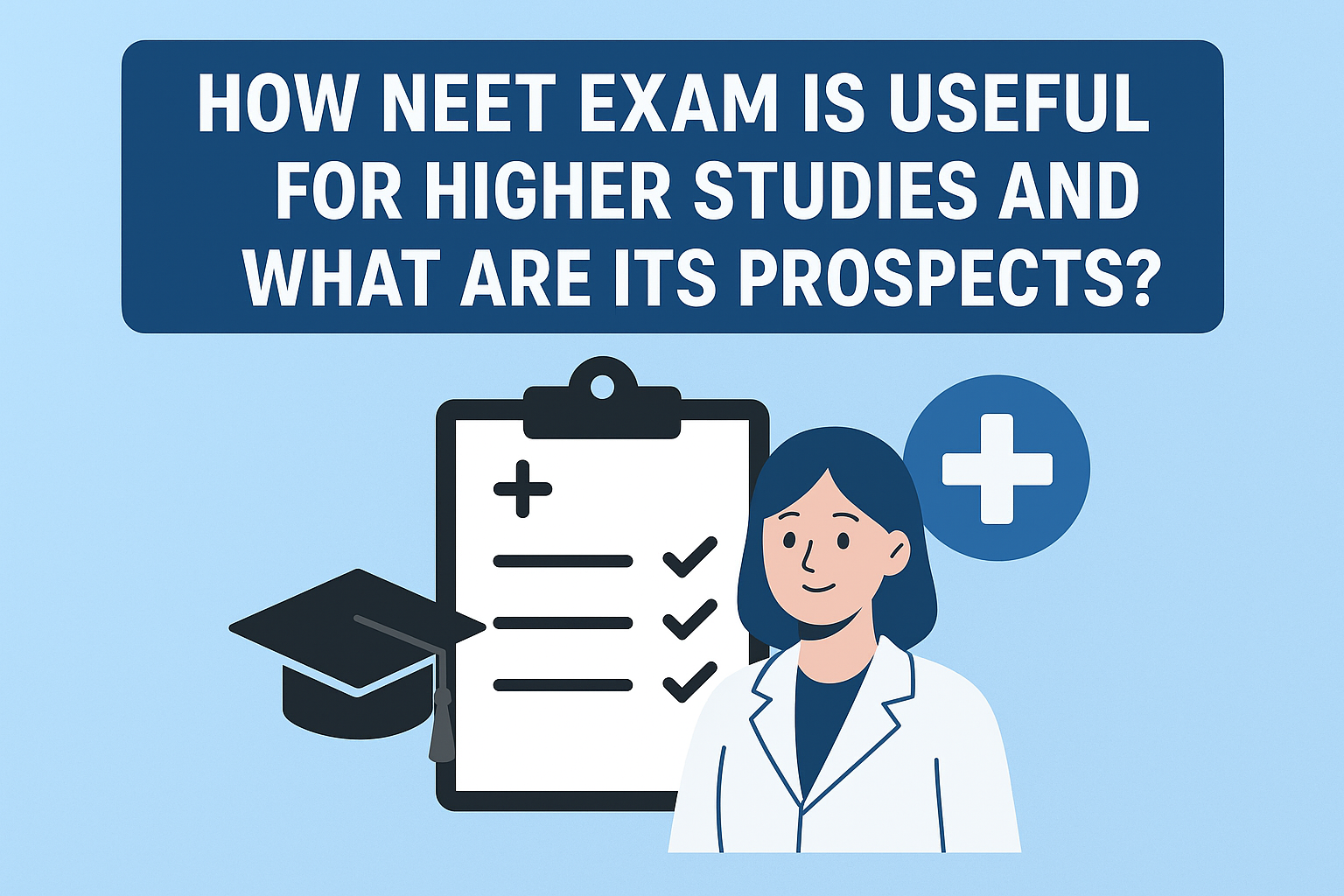
The National Eligibility cum Entrance Test (NEET) stands as a pivotal nationwide examination for Indian students aiming for careers in medicine and allied health fields. Administered by the National Testing Agency (NTA), NEET is the sole portal for under-graduate medical programs such as MBBS, BDS, BAMS, BHMS, and BSMS, in addition to numerous paramedical courses. More than a mere assessment, NEET is an important card in a student’s academic and professional strategy in the medical sector, influencing course selection, college reputation, and future research opportunities. NEET as the First Step Toward Higher Studies NEET evolves into a gateway rather than a hurdle. A competitive score allows aspirants to vie for seats in both renowned government and established private medical institutions, institutions whose diplomas circulate globally. Gaining such admission is necessary for the next academic paddling; it furnishes students with a structured appearance, respected programs whose credibility eases future visa and job struggles, and established international programs with integrated research collaborations and elective student beads. Pursuing advanced education after NEET goes far beyond the familiar MBBS and BDS tracks. Candidates may equally consider AYUSH disciplines—Ayurveda, Yoga, Naturopathy, Unani, Siddha, and Homeopathy—alongside veterinary science and a range of paramedical programs. Essentially, NEET serves as a versatile portal into diversified realms of health care, each offering distinct career trajectories. Pathways Available Following NEET Success 1. Undergraduate Medical Qualifications MBBS and BDS remain the favoured choice, as graduates gain the credentials needed to practise as physicians or dentists. They also lay the groundwork for later specialisation, meaning that the choice arrives with long-term career flexibility. 2. AYUSH Qualifications BAMS, BHMS, BSMS, and BUMS rise to meet the needs of students who favour preventive and constitutional care. These disciplines now attract ambitious scholars, thanks to a worldwide appetite for evidence-based alternatives to pharmacological therapies. 3. Allied Health Sciences Numerous paramedical tracks—ranging from B.Sc. Nursing to Medical Laboratory Technology, Radiology, and Physiotherapy—may also be pursued after NEET, depending on the particular institution. Employment prospects remain bright in these supportive professions, since every healthcare team leans heavily on the skills and expertise these graduates wield. 4. Postgraduate Studies Once students conclude their undergraduate medical training, they move on to the NEET-PG entrance exam, the gateway to MD, MS, and other advanced residency programs. Those who build a solid NEET foundation during their undergraduate years find the transition to postgraduate studies both smoother and more attainable. NEET and Long-Term Career Growth Clearing the NEET exam opens extensive long-term opportunities in a sector where the need for skilled healthcare workers is steadily increasing, both in India and overseas. Consider the most encouraging prospects: International Acceptance: Graduates of Indian medical colleges enjoy global recognition and may immediately attempt licensing tests such as the USMLE and PLAB. Advanced Specialisations and Research: NEET is the first step toward sought-after specialisations, including cardiology, neurology, and oncology, as well as promising research careers. Diversified Healthcare Career Paths: Graduates readily find well-paying roles in hospitals, pharmaceuticals, public health, biotechnology, and the rapidly expanding field of telemedicine. Stable Prestige and Job Security: The medical profession is both respected and resilient, consistently providing long-term job security. Strategies for Effective NEET Preparation A successful NEET preparation strategy hinges on sensible organization, discipline, and persistent self-testing. The following methods have proven effective: Master the Entire Syllabus: Concentrate on the NCERT textbooks for Class 11 and 12, as they form the core of NEET. Design a Functional Study Schedule: Allocate primary time to Biology, while giving adequate attention to the complementary subjects of Physics and Chemistry. Practice with Mock Tests – Regularly tackle past-year papers and take timed online quizzes to track progress. Focus on Concepts – Deepen understanding of Physics and Chemistry principles to boost problem-solving techniques. Revise Regularly – Create concise summary sheets and go over them repeatedly to reinforce memory. Stay Healthy – Prioritize balanced meals, adequate sleep, and techniques to minimize stress. Notably, a large number of hopeful future medics choose to enroll in the top school in Faridabad or other well-regarded academies renowned for early science and exam coaching. A solid scholarly base makes the NEET prep journey feel less daunting and more efficiently structured. NEET Exam Frequently Asked Questions Q1. Do I need to take NEET to study MBBS abroad? Absolutely. NEET has become a prerequisite for Indian students aiming to enroll in MBBS programs outside India. Scoring well helps you secure the eligibility certificate needed from the National Medical Commission. Q2. When should I seriously begin NEET prep? Starting in Class 11 is usually the sweet spot, yet many savvy students jump in as early as Class 9 or 10 to cement a strong foundation in core concepts. Q3. How many times can I officially sit for the NEET? There’s no upper cap on the number of times you can attempt NEET as long as you comply with the existing age limits and other eligibility norms. Q4. Which study materials should I absolutely include? NCERT texts are non-negotiable. To deepen practice, popular supplementary options are Trueman’s for Biology, HC Verma for Physics, and OP Tandon for Chemistry. Q5. Is it realistic to clear NEET without joining a coaching center? Certainly. With a well-structured study schedule, strong self-motivation, and smart use of online tools, many aspirants have successfully navigated the NEET jungle on their own. Conclusion NEET is bigger than a mere hurdle; it is a launch pad for those pursuing a fulfilling life in healthcare. It channels aspirants from their very first year in medicine through a clearly laid-out journey—starting with a sought-after UG degree, flowing through dense PG specializations, and even branching out to attractive openings abroad. When learners combine a tailored study approach with grit and day-to-day discipline, they transform a one-day paper into a gateway to the most dignified and prestigious careers up for grabs.
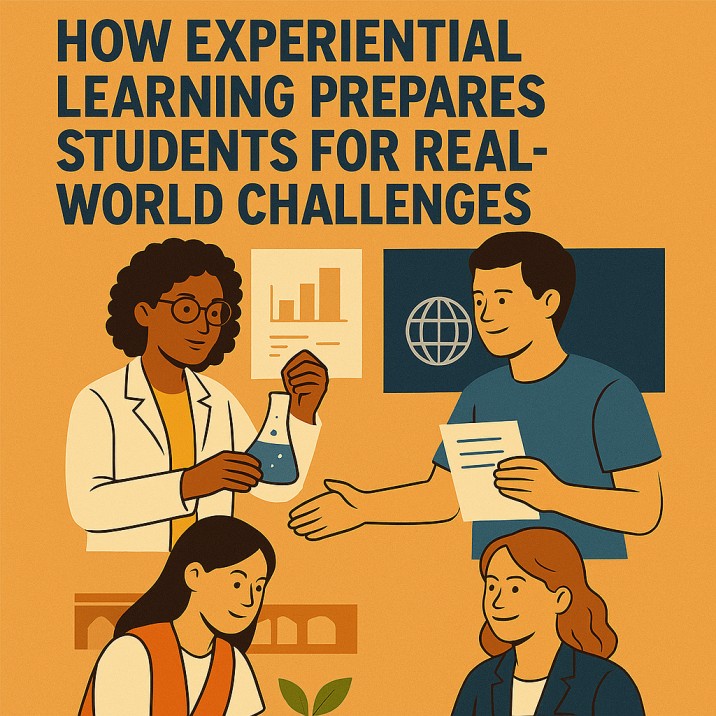
An understanding of the theory alone does not prepare students for the future in the fast-evolving world that we live in today. Society, the workforce, and employers are on the lookout for new-age innovative problem-solver thinkers. This is precisely where, experiential learning, comes in. Experiential learning enables students to gain knowledge through direct encounters, and gives them the opportunity to learn beyond the classroom. What is Experiential Learning? Learning by doing is known as experiential learning, which is the kind of learning students achieve through completing projects, simulations, internships, and fieldwork. Experiential learning focuses on the application of knowledge and is built on the student’s self-reflection with the purpose of understanding concepts. This goes a long way in ensuring that students perform not only for grade but learn concepts that are essential for life. An educational theorist, David Kolb, suggests that experiential learning is a four-stage process: experience, reflection, conceptualization, and experimentation. This cycle helps in the development of critical thinking, and the ability to adapt to changing circumstances, which is a form of creativity, all of which are the hallmarks of the modern world. Building Problem-Solving Skills Experiential learning enhances one's ability to effectively solve problems. Problems in the real world are rarely simple. Students are able to analyze problems, come up with solutions, test, and make adjustments through project-based learning, design-thinking workshops, or community-based projects. This iterative approach helps students prepare to manage real-life complexities of life and the need to adapt to different circumstances. Developing Collaboration and Communication Working with one's colleagues as well as proper communication is as important as expertise in the given profession. Experiential learning acquires students to take part in group projects, role-play activities, or entrepreneurial activities, enabling students to learn from each other and practice real-life empathy, leadership, and communication. Students are able to share ideas, articulate concepts and defend positions, and work towards the mutual agreement while they negotiate differences, which is some of the important skills needed for successful future professions. Sparking Innovation and Creativity With the world changing rapidly, innovation is more important than ever. The world’s fastest changing arena; education, is designed to maximize learning through innovation and experimentation. Through guided freedom, students are able to explore, develop, and execute their own ideas in the form of prototypes, concerts, or cultural events, even social initiatives. The ability to explore, fail, and innovate fosters resilience and adaptability in students, and is essential in today’s world. Merging Theory with Practice Experiential learning is the best answer to the infamous question, “When will I apply this in the real world?”. You can understand this best with the example of a field-program participant in science, or a business project initiate in commerce. They transcend the boundaries of the classroom. Mastering practical skills cannot be underestimated in today’s world, as the education system tends to overlook the connection of theoretical frameworks to the practical world. Preparing for Careers and Beyond Experiential learning integrates theory with practice. Community service, industry visits, and internships provide students with actual work exposure and assist them in identifying their strengths and weaknesses. Such experiences, in addition to building confidence, cultivate adaptability and a professional outlook. With this approach, schools ensure students not only possess rigorous academic knowledge, but also possess essential life skills. A Model for the Future These schools are a welcome change because they focus on the skills students possess and not the grades they achieve. Such schools are at the forefront of innovation because they blend traditional with project-based learning, after-school activities, and leadership programs. The best school in Faridabad is a perfect example of this blend where the philosophy of education is rooted in more than just the classroom. conclusion Expending learning resources is not an option, especially with learning technology making it easier to give students the immersive experiences they need in a world that increasingly values capabilities over credentials. Rote memorization is obsolete, and in this new world, students require reflection and application to foster the skills they need to navigate challenges, and start conversations on problem-solving, communication, adaptability, and travel-sized versions of the multitude of tools available. Students in the 21st century face tremendous challenges, fueled by technology.

Selecting a career path after 12th grade is a critical moment in a student's life. This selection not only impacts the educational stream you choose but also the career path you will pursue. There is ample opportunity available in Science, Commerce and Arts, but it is prudent to know the prospects of each stream before making a decision. Students from the best school in Faridabad generally try to finalize a career path early and explore the options available including receiving guidance from their mentors to optimally plan their career. 1. Career Opportunities After 12th Science Stream Students with an inclination towards technology, healthcare, engineering and research generally opt for the Science stream. It is further segmented into: PCM (Physics, Chemistry, Mathematics) - This is most appropriate for aspiring engineering, architecture and defense services candidates. Popular Careers: Engineering (Mechanical, Civil, Computer Science, AI, etc.) Architecture (B.Arch) Commercial Pilot Data Scientist PCB (Physics, Chemistry, Biology) - This is best for students with interests in healthcare, medicine and life sciences. In-Demand Occupations: Medicine: MBBS, BDS, BAMS, BHMS Nursing & Paramedical Courses Biotechnology Pharmacy PCMB (Physics, Chemistry, Mathematics, Biology) enables students to choose career opportunities from both sectors that include either PCB or PCM. Also, Science provides opportunities to pursue pure science careers like B.Sc in Physics, Chemistry, Mathematics, and in research through integrated M.Sc. or PhD programs. 2. Career Options After 12th – Commerce Stream Commerce is the best avenue for those interested in business, finance, or management. It provides some of the best earning opportunities. In-Demand Occupations: Chartered Accountant (CA) – Known for the highest ranking in finance and one of the most sought after professions. Company Secretary (CS) – Deals with corporate governance and compliance. Cost & Management Accountant (CMA) – Deals with financial planning and controlling costs. B.Com & M.Com – Opens career prospects in accounting, taxation and banking. BBA/MBA – Targeted by students who wish to pursue careers in management, marketing, and entrepreneurship. Economist – By obtaining a degree in Economics followed by post-graduate studies. Commerce students may also pursue digital marketing, stock market analysis, actuarial science, business analytics which are most sought after. 3. Career Options After 12th - Arts/Humanities Stream The Arts stream is considered one of the most engaging and interesting forms of study that is to never considered as a last option. The stream is filled with opportunities. Popular Careers: Law - Now one can pursue law through BA LLB and other integrated law courses. Psychology - In the field of psychology, one can take up counseling, therapy and research. Journalism & Mass Communication - To cater the needs of the students who are fond of media, public relations and news. Fine Arts & Design - These include career options of fashion design, graphic design, animation, and interior design. Social Work - One can pursue BSW (Bachelor of Social Work) to work with NGOs and in community development. Civil Services - Political Science, Sociology and History are Arts subjects that build strong foundations for the Civil Services who take the UPSC exams. These days, Arts students can pursue a career in content creation, digital arts, filmmaking and other fields, making the opportunities boundless. Tips to Choose the Right Career After 12th Identify Your Interests - Make sure to choose a stream and career that relates to your hobbies and your work. Evaluate Your Strengths - Consider your performance as well as your abilities. Research Future Scope - Analyze careers within the field, potential of wages and prospects of career advancement. Seek Guidance - Consult counselors, mentors, or other professionals in the field. Stay Open-Minded – Being open includes accepting changes in areas of interest in professions in new modern industries. Final Thoughts Each stream offers unique opportunities for growth and success, be it Science, Commerce, or Arts next after 12th. The most important factor is to align your decision with your skills and ambitions instead of choosing based on what everyone else is doing. Remember, career decisions shaping your future. Take your time, explore options, and choose wisely. FAQ – Career Options After 12th Q1: Which stream has the highest salary potential? Ans: Science and Commerce students usually have better pay packages compared to Arts students. Engineering, medicine, and other courses from Science and Arts having law, design, and media can be rewarding too. Q2: Can I switch my stream after 12th? Ans: Most students can switch from Science or Commerce to Arts, but moving from Arts to Science is a lot harder. Q3: How do I know which career is right for me? Ans: The right career comes as you assess your interests, strengths, and future goals. Career interest quizzes can assist as well.

Why Motivation Matters in Physical Education More Than Ever In modern society, physical education (PE) goes beyond the traditional running laps or playing a basketball game. It is focused on building a mindset toward movement, lifelong fitness, resilience, and even mental health. At the center of this change is one key factor – motivation. It is the driving force that enables one to take advantage of advanced facilities and a well-designed curriculum. The Changing Landscape of Physical Education The focus of PE in schools has changed a lot in the last decade. The historical focus of the subject was on competition and skills-based athletic performance. There was a complete focus on inclusivity and wellbeing, with personal progress taking precedence over teamwork. This is important more so in metropolitan cities where the active lifestyle is quickly becoming extinct. Today, the average student has so much to balance, including academics, constant digital stimulation, work, and social life. Physical Education classes can no longer be a formless, mandatory exercise. The driving force of a fitness PE curriculum needs to stem from motivation, be it intrinsic (personal) or extrinsic (granted for courtesy of a reward, acknowledgment, or even praise). How Motivation Changes The Game Motivation Using Consistency and Efficiency A single attempt at something becomes effortless due to motivation. A driven pupil interested in attending PE classes will develop tend to be, discipline, fitness, and endurance. Motivation Improving Mental Health Participation is gained in motivated terms, meaning all the more better mood, less stress, and more concentration for the student. This not only improves mental well-being but ensures academic success as well. Confidence is with the Help of Motivated Programs Motivation is what PE programs utilize to help the non athletic. With motivated programs, PE becomes challenging in a non intimidating manner, allowing students to neglect outer competition and focus inwards. This helps students gain confidence. Balanced Health is Contagious Motivation is a force that tends to stay with someone once motivated, something that is gained during school years. Children who participate sports and exercises tend to stay active which decreases the chances of chronic illness. How to Change Student Participation Motivation In PE Set Achievable Goals ‐ Everyone is not the same and targeting the same goal would lose motivation for everyone wanting. Help them workout fitness goals for better motivation. Mix Them All Up ‐ These include sports, dance, as well as challenges done outdoors. Incorporating Technology – Tech-savvy students are likely to respond positively to fitness trackers, games, and virtual challenges. Positive Reinforcement – In all students, recognizing effort, even when there are no tangible results, fosters a sense of achievement. Student Involvement – Allowing students to participate in planning activities can enhance enthusiasm and appreciation towards the activities. The Role of Schools in Fostering Motivation Schools that strategically invest in the holistic development of a student are known to have the best PE programs. A case in point are some of the Best schools in Faridabad where the PE curriculum is now centered around the mental, physical, and emotional wellness of the students. These schools possess state-of-the-art sports facilities, house skilled coaches, and aim to inclusively design PE programs that promote engagement rather than exclusion. By providing students with engaging and rewarding PE experiences, these schools foster lifelong physical activity beyond the classroom. Conclusion In physical education, motivation is not optional. With ever-increasing rates of sedentary lifestyles, keeping children physically active, engaged, and motivated has never been more important. School that motivates and engages students in physical education classes are not just building motivation. They are also creating active and fully engaged citizens in all aspects of life.
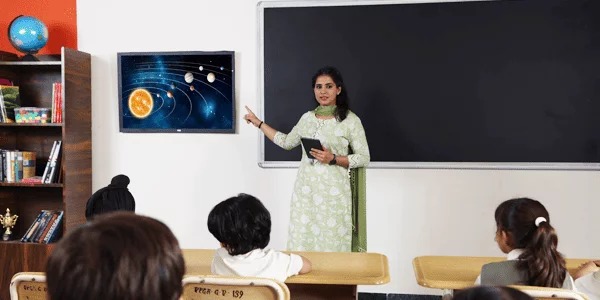
In today's fast-changing education world, bringing smart classroom tools into school is no longer optional-it has become essential. Interactive whiteboards, online lessons, AI quizzes, and cloud apps now turn ordinary rooms into lively workspaces where learners interact, create, and assess in real time. But do these gadgets and platforms actually boost student interest and improve test scores, or are they simply flashy add-ons? The Rise of Smart Classrooms A smart classroom links hardware and software so lessons feel hands-on instead of one-dimensional. Typical setups feature touch-enabled displays, videos, instant polls, shared file drives, and virtual team spaces that pull learners into the action rather than leave them sitting quietly. Altogether, these tools aim to build an environment that engages students, supports diverse learning styles, and moves beyond the limits of paper-and-chalk methods. Schools in progressive regions, including many Best schools in Faridabad, have started adopting smart classroom solutions to provide students with modern, competitive education. Institutions like DSIS Faridabad, a top school in Faridabad, are actively embracing these innovations to foster better academic outcomes. Boosting Student Engagement One of the biggest advantages of smart classrooms is the noticeable lift in student interest. Features like short videos, lively animations, hands-on simulations, and quick quizzes pull learners in and make each lesson feel more like fun than work. Unlike traditional classes where pupils sit quietly and only listen, a connected room pushes them to jump, talk, click, and question the material directly. Add-on games, live polls, and buzzing clicker questions give eyes and hands something to do while teachers watch screens for instant signs of who gets it and who does not. Because visuals speak to sight-focused learners and sounds speak to those who, quite literally, hear the lesson, this mix touches almost every kind of brain in the room. Enhancing Learning Outcomes The same technology does more than raise spirits; it can lift grades. By collecting small bits of data after every task, AI spots what a student masters and what still feels foggy. Armed with that insight, the teacher tweaks tomorrow's plans or pulls a child into small-d-group work, and the result is deeper understanding and better long-term recall of tough ideas. Smart kits also make blending easier by putting online quizzes, video modules, and interactive articles beside the whiteboard notes. Because learners can speed up, slow down, or replay at home, lessons stick longer and test stress shrinks. Cloud calendars, folders, and apps push those benefits beyond bell times. A missed class? No problem. The tutorial, notes, and extra practice live online, so habits stay steady and learning stays flexible, whether the student is at school, on the bus, or lounging with a tablet after dinner. Teacher Empowerment Smart tools in the classroom do more than wow the kids; they give teachers real clout. Because instructors can see up-to-the-minute data about who is mastering the lesson and who is confused, they can tweak their approach on the fly. That quick feedback leads to tighter plans and a teaching style that meets each class where it is. The same technology also handles grading and report writing, letting educators spend less time on paper and more time coaching students face to face. Challenges and Considerations But all that sparkle doesn't come free. Schools still have to budget for new gear, train staff so everyone feels confident, and make sure every student-can log in from home or in the library. Even then, technology should support, not replace, the caring conversations and intuitive instincts that only people bring to learning. Final Thoughts When chosen wisely, smart tools lift engagement and improve test scores in a big way. By making lessons interactive, personal, and open to all, they solve many of the pain points found in rows of desks and chalk dust. Institutions like DSIS Faridabad show that, with a thoughtful rollout, these innovations can turn the classroom into a thriving hub of curiosity and achievement. FAQs Q1: What are smart classroom solutions? Its everything from smart boards and online lesson apps to AI quizzes and cloud libraries that work together to make teaching easier and learning more lively. Read More : International School in Faridabad

Getting 100 marks in CBSE 12th board Math is achievable if you follow a strategy, you have proper guidance, and you are committed to hard work. Math is one of those subjects where conceptual clarity is required, practice at regular intervals, and effective time management. If you want 100% in Math, then experiment with these tips: Select the Right School Your selected school is of top priority to your success in studies. Admission in the Best CBSE School in Faridabad may prove to be a life-altering moment for you. Delhi Scholars International Schoo, being the Top School in Faridabad, provides good teaching faculty, well-structured lessons, and a proper study environment to enable students to perform well in Mathematics and other subjects. Know the Syllabus and Exam Pattern CBSE Maths syllabus is designed in units with different weightages. Know about the distribution of marks and focus on high-weightage chapters such as Calculus, Algebra, and Probability. Knowing the exam pattern prepares and organizes the time. Practice NCERT and Reference Books NCERT books cannot be avoided because CBSE designates the question papers primarily from the NCERT concepts. Practice all examples and exercise questions extensively. For more practice, read books like R.D. Sharma and question papers of past years. Systematic Practice and Problem Solving Maths is to be practiced on a day-to-day basis. Utilize a minimum of 2-3 hours on a daily basis in solving various types of questions. Practice numerous times to grow speed, precision, and certainty in solving hard questions. Attempt Previous Year Papers and Sample Papers Practice previous year question papers to know the pattern and trend of questions being asked. Practice papers with a time limit to increase efficiency and speed. Sample papers of CBSE give an idea about the new trend of questions. Conceptual Clarity Conceptual clarity is needed. Delhi Scholars International School teachers use innovative pedagogy to simplify complex concepts and enable students to study the basics well. Time Management and Exam Strategy Make the most of the time available for the exam: distribute time for easy, medium, and difficult questions. Start with questions where you can be sure of increasing speed. Use 15-20 minutes at the end for revision. Take full steps in solutions for maximum marks. Be Neat and Exact Write clearly and neatly with proper margins. Mark formulas and terminal answers. Avoid careless mistakes by doing correct calculations. Clear Doubts Early Don't hesitate to ask your questions. Delhi Scholars International School teachers are always available to help the students and clear the doubts of every subject so that no concept would be unclear. Regular and Optimistic Consistency is success. Plan your study time and stick to it. Always be optimistic and confident. Have faith in your practice. Take Assistance from Experts The best schools provide qualified staff to guide the students to their best. Delhi Scholars International School, Best CBSE School in Faridabad, provides better Mathematics tuition so that the students are ready for the exam. Conclusion: Scoring full marks in CBSE 12th board Maths requires clear concepts, rigorous practice, and right guidance. Being a student of a renowned school like Delhi Scholars International School, the Best School in Faridabad, it is guaranteed that students are given class education, expert guidance, and a competitive atmosphere. Follow these tips, stay firm, and success is yours!
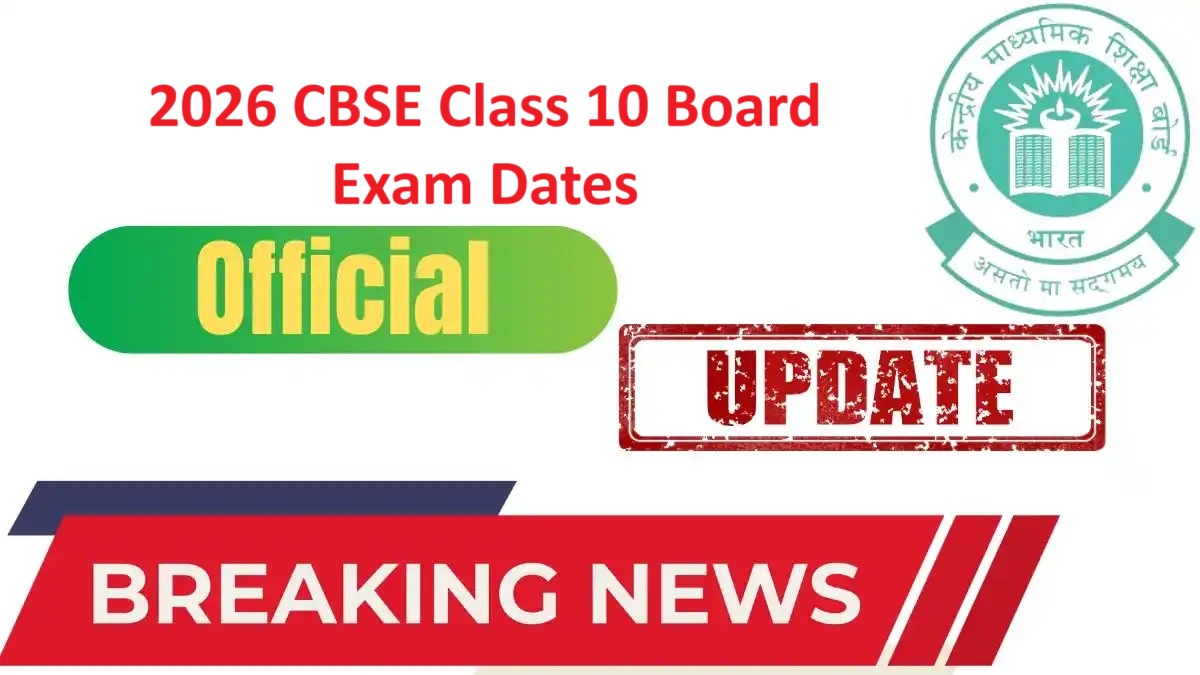
1. Enlistments & Tasks Before The Exam Final registration submission: On or before November 30, 2025 Correction window for subject/ spelling changes: Dec 10-20, 2025 Release of admit cards: Available by February 10, 2026. (can be accessed online). 2. Practical Activities Science subjects: Feb 16–28, 2026 * Physics, Chemistry and Biology. Mathematics sessions/labs: Feb18 –26 ,2026. Computer applications/practical: Feb20–27 June2019 rubrics. These activities are typically conducted at the student's home schools. 3. Theory Examinations CBSE typically announces the formal theory exam schedule by January 15, 2026, with exams held over a four-week span. Here's the provisional timetable: Date Day Subject Timings Feb 27, 2026 Friday English Elective (301)/Language I, II 10:30–1:30 PM Mar 2, 2026 Monday Hindi Course A (002)/B (085) 10:30–1:30 PM Mar 4, 2026 Wednesday Mathematics Standard (241) 10:30–1:30 PM Mar 5, 2026 Thursday Mathematics Basic (241) 10:30–1:30 PM Mar 7, 2026 Saturday Science (086) 10:30–1:30 PM Mar 9, 2026 Monday Social Science (087) 10:30–1:30 PM Mar 11, 2026 Wednesday Sanskrit (2nd Language)/Other 10:30–1:30 PM Note: This is provisional; official confirmation is expected mid-January 2026. 4. Result Declaration Results are usually released on CBSE’s website by May 1,2026 at the latest. Action Steps Prior To The Exams Revision planning: breakdown topics into a timeline and include all subjects while leaving room for practice of board style questions. Mock examinations: recreate realistic exam environments using sample papers issued by CBSE and past years’ papers. Ask Questions: Contact relevant teachers promptly to avoid last minute rush. Look after your health as a whole: Maintain dietary alongside rest schedule that includes sleep as well as alliances during studying. Double-Check Your Admit Card: Ensure that information such as name, roll number, examination centre and subject codes are correct in the given timeframe before feb the tenth twenty six. Focus Area: Education in Faridabad Faridabad is known for its CBSE affiliated school which are amazing for learning and preparation for the future. Some of the famous ones are DPS Faridabad, public schools affiliated with Sant Longowal Institute, and a number of Kendriya Vidyalayas. If you’re looking some schools in Faridabad, look no further than those with high successes rated on Class 10 boards examinations, their faculty's experience, and their focused coaching strategies on structured testing. Frequently Asked Questions Q1: What’s the timeline to receive my CBSE Class 10 admit card? A: Generally issued by February 10th, 2026, it can be accessed after registration. Students have to either download it from CBSE’s site or obtain through their respective schools. Q2: My accounts state I am registered for certain subjects. Am I allowed to change them? A: Adjustments can be made during the correction period (Dec 10-20, 2025). However such changes permanently thereafter are prohibited officially. Q3: Can I skip any exams because of serious illnesses or urgent matters? A: You need to apply to CBSE within a week stating your case along with sufficient proof of medical documentation. In reasonable circumstances, CBSE grants some form of flexibly including grace marks or rescheduling. Q4: What is grading methodology? A: A nine-point grading system is employed by CBSE (A1 to E2). Both theory marks and practical/internal assessments are considered when determining each grade. Q5: What is the procedure for obtaining results on the 1st of May, 2026? A: You need to go to cbse.gov.in or alternatively to cbseresults.nic.in. Type in your roll number along with your school number and admit card ID. Results are also available through SMS and the official mobile app. To Conclude Grasping all segments of the comprehensive timeline—from registration to withdrawals, practicals, theory, and culminating with results—enhances exam composure. Meeting deadlines like Nov 30, 2025 for registration and Feb 27 to Mar 13, 2026 for theory exams helps eliminate last minute surprises. Students attending schools located in Faridabad benefit from unparalleled access to seasoned teachers and specialized exam preparation facilities. Optimize your performance with mock tests as well as prompt doubt clearance and routine checkups. Best wishes to all the Class 10 students. Make the most of the board examinations in 2026 and let your diligent efforts resonate!

In an effort to reduce the burden on students and improve academic performance, the Central Board of Secondary Education (CBSE) has implemented a significant change for Class 10 learners – starting from the academic year 2025–26, there will be two board examinations conducted annually. This monumental change is in line with NEP 2020 which aims to make policies around evaluation more flexible and relaxing. What Is Different? Two Instead of One Students under the transformed structure will have an opportunity to sit for their board exam twice within a single academic year: The first exam will be held between February–March. The second attempt primarily meant for improvement will occur around May-June. The best score out of both attempts will be used towards the final result. Significantly, appearing for the first exam is compulsory, while the second attempt is optional. What Motivates This Change? This policy shift looks to alleviate some of the immense psychological stress students experience during board examinations. By providing a second opportunity, CBSE intends to: Motivate learners to approach exams as important benchmarks in their educational journey rather than a definitive verdict on their abilities. Allow score improvement chances without waiting for a year. Accommodate overseas educational systems with flexible exam dates. Changes To Evaluation Methods In addition to the dual examinations, CBSE is changing how students are assessed: Critical thinking, analysis, and application will now make up 50% of the questions, which will be competency-based. Other question types will include MCQs, short answer, and descriptive answers of varying lengths. Internal assessments will include tests taken during lessons as well as class activities contributing as much as 40% to the final grade. Improvements to Grading System With an updated 9-point grading system, students can be assessed more accurately on their performance allowing for clearer distinction between grades. This is especially helpful for colleges and employers that assess academic capabilities. Recommended Student Actions Students in class 10 must ensure to: Check regularly for updates regarding the CBSE syllabus and examination schedules. Make sure there is enough time set aside to excel during the first mock test scheduled mid/early term. Emphasize applying knowledge in practice through engaging exercises instead of rote learning. Give considerable effort towards internal assessments because of their heavy weighting on overall marking. Similarly, with recent changes, parents need to guide their wards towards embracing tests and assist them in coping with the changes. Actions Taken by Schools Top schools around the country are preparing far more rigorously for the new policies and integrating them into their teaching practices. For example, one of the Faridabad top schools has implemented a comprehensive applied learning module to train students on competencies-based education to help them ease into these changes. Other such schools are also leading with effective teaching strategies for internal assessments and revised pedagogic approaches alongside CBSE redesign reforms. FAQs: Class 10/CBSE Dual Board Examination System Q1. Is both examinations compulsory for all students? No. It is mandatory for students to sit for first exam, however, the second one is optional if taken for mark enhancement purposes. Q2. Will there be two scores recorded? Both composite scores will be ignored as only the best score claimed shall be captured as final result. Q3. What if a user did not successfully complete first assessment? There’s only a special second chance offered to participants who have some level of justification (Illness, going abroad, etc.) Q4 Are both exam’,s criteria identical? Affirmative; all questions come from within the confines outlined in the curriculum taught in every single iteration of examination. Q5. Does Class 10 become more challenging because of this? Not really. The restructuring aims to make learning more meaningful and mitigate stress rather than increase it. The imminent changes from CBSE signifies the move towards a more progressive educational system, which has in mind the needs of the student. Students are expected to utilize these advancements for their academic and personal growth if supported properly during preparation and guidance at all levels.
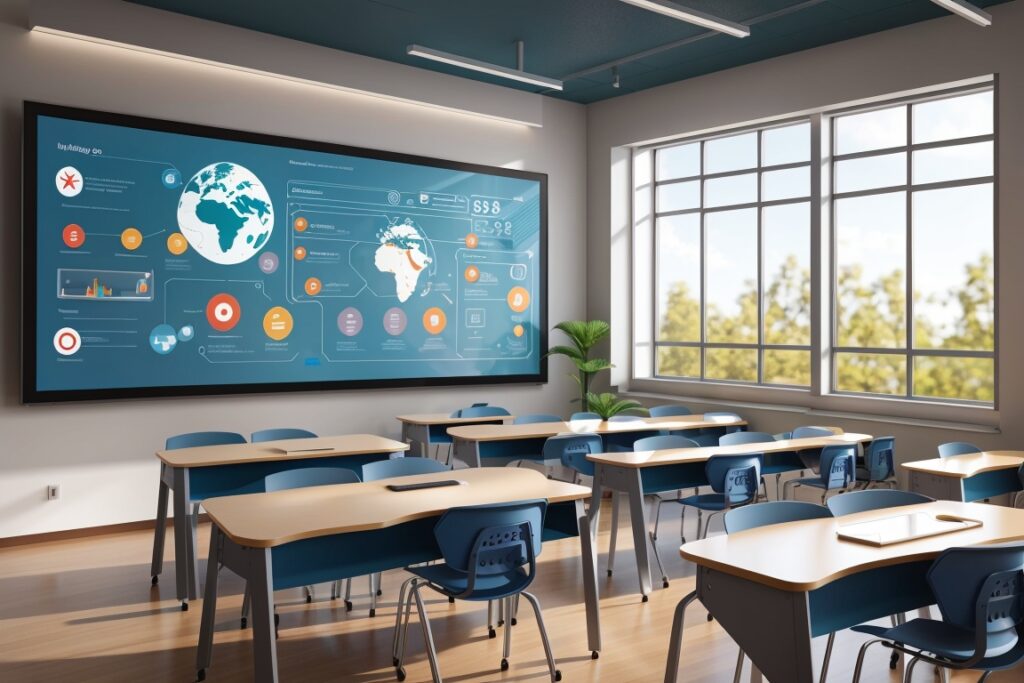
In today's fast-changing education world, bringing smart classroom tools into school is no longer optional-it has become essential. Interactive whiteboards, online lessons, AI quizzes, and cloud apps now turn ordinary rooms into lively workspaces where learners interact, create, and assess in real time. But do these gadgets and platforms actually boost student interest and improve test scores, or are they simply flashy add-ons? The Rise of Smart Classrooms A smart classroom links hardware and software so lessons feel hands-on instead of one-dimensional. Typical setups feature touch-enabled displays, videos, instant polls, shared file drives, and virtual team spaces that pull learners into the action rather than leave them sitting quietly. Altogether, these tools aim to build an environment that engages students, supports diverse learning styles, and moves beyond the limits of paper-and-chalk methods. Schools in progressive regions, including many schools in Faridabad, have started adopting smart classroom solutions to provide students with modern, competitive education. Institutions like DSIS Faridabad, a top school in Faridabad, are actively embracing these innovations to foster better academic outcomes. Boosting Student Engagement One of the biggest advantages of smart classrooms is the noticeable lift in student interest. Features like short videos, lively animations, hands-on simulations, and quick quizzes pull learners in and make each lesson feel more like fun than work. Unlike traditional classes where pupils sit quietly and only listen, a connected room pushes them to jump, talk, click, and question the material directly. Add-on games, live polls, and buzzing clicker questions give eyes and hands something to do while teachers watch screens for instant signs of who gets it and who does not. Because visuals speak to sight-focused learners and sounds speak to those who, quite literally, hear the lesson, this mix touches almost every kind of brain in the room. Enhancing Learning Outcomes The same technology does more than raise spirits; it can lift grades. By collecting small bits of data after every task, AI spots what a student masters and what still feels foggy. Armed with that insight, the teacher tweaks tomorrow's plans or pulls a child into small-d-group work, and the result is deeper understanding and better long-term recall of tough ideas. Smart kits also make blending easier by putting online quizzes, video modules, and interactive articles beside the whiteboard notes. Because learners can speed up, slow down, or replay at home, lessons stick longer and test stress shrinks. Cloud calendars, folders, and apps push those benefits beyond bell times. A missed class? No problem. The tutorial, notes, and extra practice live online, so habits stay steady and learning stays flexible, whether the student is at school, on the bus, or lounging with a tablet after dinner. Teacher Empowerment Smart tools in the classroom do more than wow the kids; they give teachers real clout. Because instructors can see up-to-the-minute data about who is mastering the lesson and who is confused, they can tweak their approach on the fly. That quick feedback leads to tighter plans and a teaching style that meets each class where it is. The same technology also handles grading and report writing, letting educators spend less time on paper and more time coaching students face to face. Challenges and Considerations But all that sparkle doesn't come free. Schools still have to budget for new gear, train staff so everyone feels confident, and make sure every student-can log in from home or in the library. Even then, technology should support, not replace, the caring conversations and intuitive instincts that only people bring to learning. Final Thoughts When chosen wisely, smart tools lift engagement and improve test scores in a big way. By making lessons interactive, personal, and open to all, they solve many of the pain points found in rows of desks and chalk dust. Institutions like DSIS Faridabad show that, with a thoughtful rollout, these innovations can turn the classroom into a thriving hub of curiosity and achievement. FAQs Q1: What are smart classroom solutions? Its everything from smart boards and online lesson apps to AI quizzes and cloud libraries that work together to make teaching easier and learning more lively.

Getting 100 marks in CBSE 12th board Math is achievable if you follow a strategy, you have proper guidance, and you are committed to hard work. Math is one of those subjects where conceptual clarity is required, practice at regular intervals, and effective time management. If you want 100% in Math, then experiment with these tips: Select the Right School Your selected school is of top priority to your success in studies. Admission in the Best CBSE School in Faridabad may prove to be a life-altering moment for you. Delhi Scholars International Schoo, being the Top School in Faridabad, provides good teaching faculty, well-structured lessons, and a proper study environment to enable students to perform well in Mathematics and other subjects. Know the Syllabus and Exam Pattern CBSE Maths syllabus is designed in units with different weightages. Know about the distribution of marks and focus on high-weightage chapters such as Calculus, Algebra, and Probability. Knowing the exam pattern prepares and organizes the time. Practice NCERT and Reference Books NCERT books cannot be avoided because CBSE designates the question papers primarily from the NCERT concepts. Practice all examples and exercise questions extensively. For more practice, read books like R.D. Sharma and question papers of past years. Systematic Practice and Problem Solving Maths is to be practiced on a day-to-day basis. Utilize a minimum of 2-3 hours on a daily basis in solving various types of questions. Practice numerous times to grow speed, precision, and certainty in solving hard questions. Attempt Previous Year Papers and Sample Papers Practice previous year question papers to know the pattern and trend of questions being asked Practice papers with a time limit to increase efficiency and speed Sample papers of CBSE give an idea about the new trend of questions. Conceptual Clarity Conceptual clarity is needed. Delhi Scholars International School teachers use innovative pedagogy to simplify complex concepts and enable students to study the basics well. Time Management and Exam Strategy Make the most of the time available for the exam: distribute time for easy, medium, and difficult questions. Start with questions where you can be sure of increasing speed. Use 15-20 minutes at the end for revision. Take full steps in solutions for maximum marks. Be Neat and Exact Write clearly and neatly with proper margins. Mark formulas and terminal answers. Avoid careless mistakes by doing correct calculations. Clear Doubts Early Don't hesitate to ask your questions. Delhi Scholars International School teachers are always available to help the students and clear the doubts of every subject so that no concept would be unclear. Regular and Optimistic Consistency is success. Plan your study time and stick to it. Always be optimistic and confident. Have faith in your practice. Take Assistance from Experts The best schools provide qualified staff to guide the students to their best. Delhi Scholars International School, Best CBSE School in Faridabad, provides better Mathematics tuition so that the students are ready for the exam. Conclusion: Scoring full marks in CBSE 12th board Maths requires clear concepts, rigorous practice, and right guidance. Being a student of a renowned school like Delhi Scholars International School, the Best School in Faridabad, it is guaranteed that students are given class education, expert guidance, and a competitive atmosphere. Follow these tips, stay firm, and success is yours!

In todays fast-changing world, picking the right school for your child feels like a make-or-break decision. Most parents look for a place that celebrates good grades while also helping kids grow as thinkers, creators, and kind friends. DSIS Faridabad (Delhi Scholars International School) sits proudly among Faridabads best, blending global practices with deep-rooted Indian values. A Vision for Excellence For the team at DSIS, teaching goes well beyond memorizing facts or chasing test scores. Instead, every lesson is crafted to spark curiosity, encourage innovation, and build resilient character. By preparing children for tomorrows challenges and responsibilities, the school has earned its place as a front-runner among Faridabs top schools. World-Class Infrastructure The campuses green, airy design speaks volumes about the schools commitment to sustainable learning. Inside, you will find smart classrooms, hands-on science and computer labs, a resource-rich library, a dedicated robotics workshop, and spacious courts for every sport. Together, these facilities give every student the chance to shine in academics and hobbies alike. Qualified and Caring Faculty DSIS knows that good teachers hold a school together. That is why it hires devoted staff who have years of experience, stay current through regular training, and use fresh, creative techniques to keep lessons lively. Workshops on the latest classroom technology let instructors learn new tools, so every pupil benefits. Holistic Development At DSIS Faridabad, learning reaches far beyond books. Students take part in sport, music, dance, art, theatre, yoga, and lively debates, giving them room to chase old hobbies or uncover hidden ones. Field trips, workshops, and inter-school contests add hands-on fun while sparking leadership, creativity, and teamwork. Emphasis on Values and Discipline Modern methods matter, yet DSIS still guards time-honoured values. Classes and daily life remind pupils about honesty, kindness, and showing respect. Mixing solid study, self-discipline, and ethics helps children grow into dependable, balanced adults. International Exposure Looking outward, DSIS Faridabad builds a truly global classroom. Exchange trips, shared online lessons, and projects with schools overseas introduce pupils to fresh cultures and viewpoints. These experiences help them think big, adapt easily and stand ready to succeed anywhere in the world. Technology-Driven Learning At DSIS, tech is woven into classes. Smart boards, e-books, and online quizzes keep lessons lively and let each student learn at a comfortable pace. When COVID-19 hit, the school switched to remote learning in a heartbeat, showing just how ready it was. Safe and Inclusive Environment Many parents choose DSIS because it feels both safe and welcoming. A campus watched by cameras, trained guards, and on-site counselors means that kids can focus on learning while grown-ups worry less. Strong Parent-School Partnership Clear, regular talk with families is at the heart of the schools success. Frequent meetings, workshops, and feedback chats keep parents in the loop about both their childs growth and the schools goals. FAQs About DSIS Faridabad Q1. What curriculum does DSIS Faridabad follow? A: DSIS uses the CBSE syllabus but pairs it with hands-on, real-world activities. Q2. How does DSIS support weak or slow learners? A: The school runs extra tutoring sessions and matches each child with a mentor so progress never stalls. Q3. Are there any international programs or collaborations? A: Absolutely. Through overseas partnerships, exchange trips, and joint projects, students gain a global perspective right here at home. Q4. What safety measures are in place for students? A: Daily live CCTV, watchful security guards, and regular drills help keep everyone safe. On-site counselors also support students when stress or worries appear. Q5. Is transportation provided by the school? A: Yes, DSIS runs a smooth, GPS-tracked fleet that reaches all major neighborhoods in Faridabad. Conclusion DSIS Faridabad is much more than a school-it's a caring home where children learn to imagine boldly, question wisely, and step forward with self-belief. By fusing strong lessons, core values, fresh ideas, and genuine concern, DSIS has earned its place among the very top schools in Faridabad. Read More: Which is the Best International Board School in Faridabad

Picking a stream after tenth class can change the course of your life. its the first move on the road to a career and a self-built future. Science, Commerce, or Arts-you must follow what sparks your curiosity and fits your strengths. With so many choices on the table, many learners feel stressed and gamble on the wrong road. This post walks you through the options so you can decide wisely once the board exams end. Understanding the Streams Available After 10th 1. Science Stream The Science stream suits anyone who wonders how things work, likes lab experiments, and enjoys dealing with numbers and formulas. Core subjects are Physics, Chemistry, Biology, and, often, extra Mathematics, which train your reasoning and observation skills. Career Options: Engineering, Medical, IT, Research, Data Science, Biotechnology, and more. Best For: Young people who thrive on solving puzzles, love seeing theories turn tangible, and have solid maths and analytical habits. 2. Commerce Stream Commerce pulls in students keen on money, market trends, and the bigger picture of trade and economics. Classes such as Accountancy, Business Studies, and Economics build a framework for understanding how businesses run and grow. Career Options: Chartered Accountancy (CA), Company Secretary (CS), Banking, Finance, Marketing, and Business Management. Best For: People comfortable with figures, curious about laws and markets, and able to think critically about real-world business problems. 3. Arts (Humanities) Stream The Arts stream welcomes people who think creatively and enjoy exploring History, Geography, Political Science, Psychology, Literature or Sociology. Career Options: Journalism, Civil Services, Law, Teaching, Psychology, Design, Social Work. Best For: Learners with good language flair, curiosity about people, and a taste for original ideas that shape modern life. How to Choose the Right Stream After 10th Picking the right stream is less about following friends and more about figuring out where you fit best. Use these simple steps to guide your choice: 1. Know Your Interests and Strengths Think back on classes that spark joy and where grades stay high. Do you love solving sums, disassembling gadgets, or getting lost in novels and old maps? Let those clues point your way. 2. Take Aptitude and Career Tests Online quizzes or school-guided tests check skills, habits, and work style. Results link your profile to streams and careers that could click for you. 3. Research Career Opportunities Every stream opens many doors, so scan jobs tied to your interests. Note required degrees, daily tasks and future demand, then keep the best options in mind as you decide. 4. Speak to Career Counselors Career counselors trained in todays job market can walk you through each study stream, spot your strengths, and recommend paths that fit after talking with you and using career quizzes. 5. Consult Parents and Teachers Parents and teachers have watched your schoolwork and how you tackle problems. Their observations, when mixed with expert advice, can lead you to a choice that feels right and realistic. Common Mistakes to Avoid Following Friends: Picking a stream just because the group does is risky. What excites one friend may bore or overwhelm you. Ignoring Passion: Enrolling in a subject you dread for its image can sap your energy and grades. Genuine curiosity; not prestige, keeps you committed. Overlooking Future Scope: Consider where each option may lead, not only today but in five or ten years. Final Thoughts No single stream is the best for every student. The right one is the one that plays to your abilities, lights your passion, and lines up with the career you want. Be truthful with yourself, and choose a path you can live with tomorrow as well as today. Each route can lead to meaningful work; your dedication is what will turn class projects into real success stories. FAQs on Choosing a Stream After 10th Q1. Which stream has the best scope in the future? Every stream - Science, Commerce, or Arts - opens real doors if you match it with your goal. Whether you end up in tech, business, or design, staying curious and working hard makes the biggest difference. Q2. Can I change my stream later? You can switch, yet doing so after Class 11 often means extra lessons and lost time. A little research now saves you those headaches later. Q3. What if Im still confused? If doubt lingers, sit a career test, chat with a school counselor, and read about each field. Give yourself space; rushing a choice rarely ends well. Q4. Is Arts a good stream? Yes, the Arts path suits anyone heading into law, journalism, civil service, design, psychology, or wider humanities work. It balances creativity with clear thinking and helps folks grow intellectually and personally. Q5. Is Science tougher than Commerce or Arts? Many see Science as harder because of math-heavy labs and formulas, yet the real challenge lies in personal interest and natural skill. What feels steep for one student could be easy ground for another. Read More: Which is the Best International Board School in Faridabad
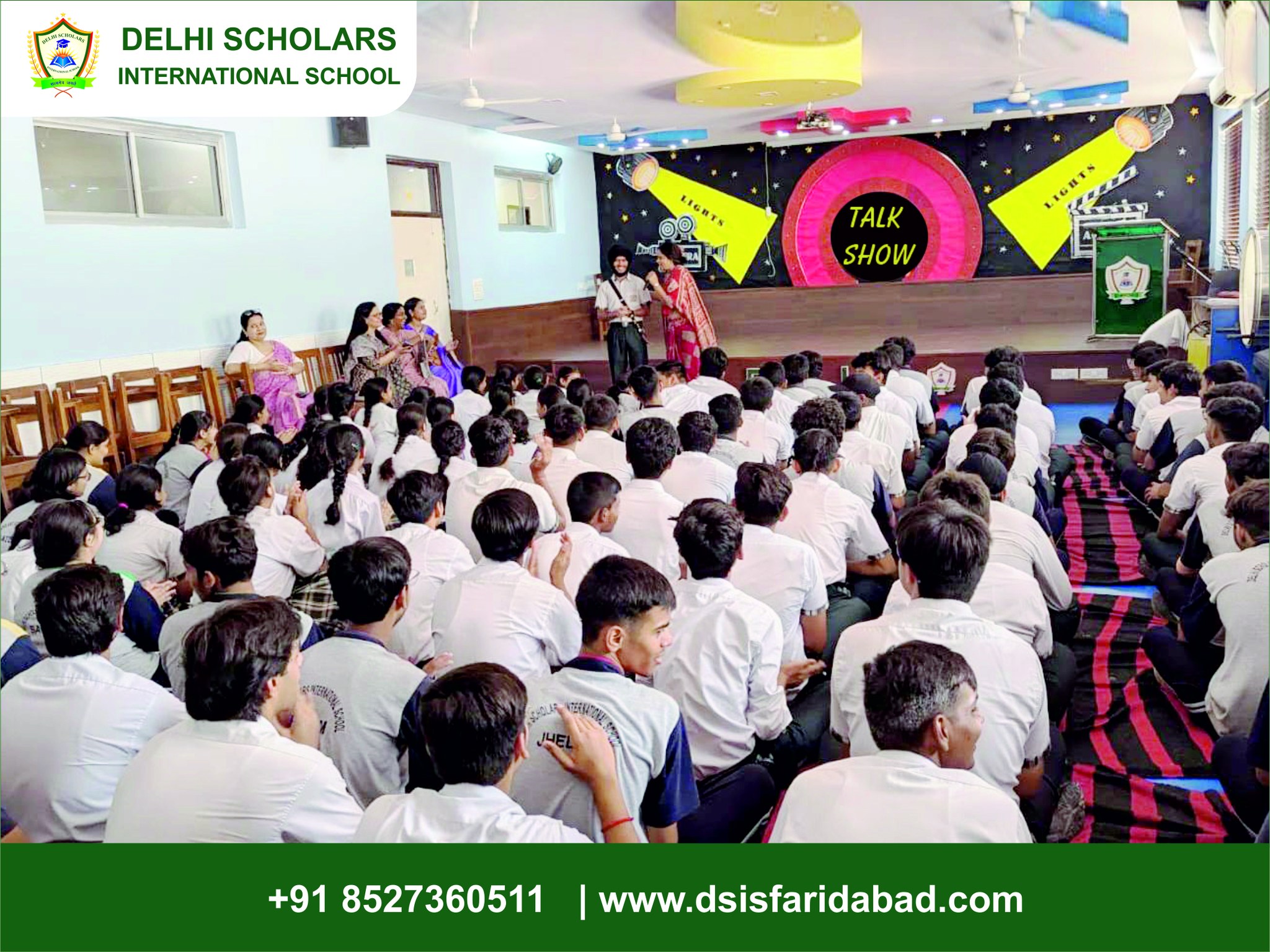
Faridabad has been changing fast; factory skylines now share the horizon with new apartment blocks. Parents walking those polished lobbies can often be heard asking about international boards. An influx of families from Delhi and beyond means demand for a global-style classroom has shot up, and the Kinder-Board-CAIE-IB debate never feels settled. Putting a child in one of these schools, the thinking goes, might tilt the odds in favor of a career that wont be boxed in by the Indira Gandhi flyover. Why Choose an International Board School? International Board School in Faridabad lean on syllabuses like the International Baccalaureate or the Cambridge Assessment series, both of which travel well beyond Indias borders. Teachers inside those walls push for questions more than answers; class discussions roar like an electric generator and then cool down just as suddenly. Independent projects spill into weekends, portfolios grow thicker than exercise books, and pathways to internships in Berlin, Sydney or Toronto begin to unfurl before the students even leave school. Language lists dangle next to coding and drama, so kids stop thinking of them as extra and start treating them as essential. That mix-sharp inquiry habits, broad cultural outlook, usable tech know-how-gives graduates a fighting chance when they finally walk into a foreign university lecture hall. Best International Board School in Faridabad When parents in Faridabad start asking friends for school recommendations, Delhi Scholars International School almost always comes up. Families have noticed its student-first classroom style and its shiny new labs, and word spreads fast in this compact city. Global Curriculum Mission statements look good on walls, but here the bulletin board keeps filling with project outlines, student debates and even pop-up science fairs. That steady buzz of activity hints at a curriculum built on internationally accepted rubrics, blended with lessons on festival customs, cricket lore and Indian literature. Experienced Faculty Teachers at DSIS Faridabad dont stand sentinel at the front of the room; they circle tables, toss out guiding questions, and nudge teenagers to chase their own answers. Most staff members hold degrees from foreign universities and carry years of overseas classroom experience, so they dont shy away from student-chosen, sometimes messy, inquiry-based projects. World-Class Infrastructure One glance inside the campus-young coders huddling in a robotics lab, seniors rehearsing Shakespeare in a black-box theatre, budding physicists jotting notes beside a brand-new spectrometer-clues you in: the school spent considerable time, energy and rupees designing a workstation for the imagination. Smartboards, modular science benches and soft seating dont guarantee creative genius, but they hear plenty of ideas bouncing off the walls. Global Exposure Quick, name a platform to test your mettle against fourteen countries without clearing customs. Kids here rattle off MUNs, Olympiads and peer-exchange schemes without pausing, because those trips feel as routine as a week of cricket practice. The friendships forged during a summer stay in Berlin or a home-stay in Kyoto rarely fade, and alumni groups keep updating the Whats-App. Families say that brand of global confidence sticks long after the report cards are filed. Holistic Development DSIS goes far beyond the textbooks. Young athletes hone their bodies on the field, while budding leaders practice decision-making in real time. Workshops on public speaking, teamwork exercises, and everyday life skills help teenagers step confidently into a world that expects responsible, global-minded citizens. Safety and Well-being Cameras dot the campus and security teams roam the grounds, so parents usually relax the second their child steps through the main gate. Counselors chat with the students each week, and a strict health-monitoring system keeps an eye on everything from allergies to moods. Well-being here is more than a slogan; it comes with daily routines designed to catch even small worries before they grow. Conclusion Families chasing a school that marries top-tier international benchmarks with time-tested Indian values keep circling back to DSIS Faridabad. The institution hands out straight A+ grades on academics, yet the real trophy lies in raising tomorrow's global leaders who still know where their roots are planted. FAQs - Q1. What curriculum does DSIS Faridabad follow? The school adopts an internationally oriented framework that meshes global norms with local educational mandates. In plain English, that means students can pivot comfortably toward either national boards or international pathways when the time comes. Q2. Are international-board schools better than CBSE or ICSE? Neither system wears a universal crown. Many find that the transient perks-inflexible subject picks, research-heavy classes, and worldwide clout-suit certain students perfectly, while others prefer the structure and heritage of CBSE or ICSE. Preference, in this case, is beautifully personal. Q3. What facilities should I expect in an international board school? Most campuses of this kind offer blended learning rooms, robotics and coding suites, dedicated language pods, full-size sports arenas, faculty from several nations, and projects that connect students to communities around the globe. Q4. Is the fee structure higher in international schools? Tuition tends to be steeper because of imported textbooks, upgraded hardware, and travel-ready programmes. Parents often find the premium worthwhile once they see the leap in academic rigour and cultural reach.

With the rise of technology and globalization, the world is not divided by borders and neither is education. Schools in India which once focused on local methodologies are now taking a more international approach by partnering globally to equip students with the skills needed to thrive in a connected world. Globalization has unified classrooms and it is evolving the way Indian students learn, interact with each other, and perceive the world around them. The Evolution of Global Classrooms Countries across the globe are easing restrictions on the use of technology based teaching methods. For example, a global classroom is where learners from internationally different countries and cultures interact digitally through shared online curricula, learning ecosystems, and even in physical settings through exchange programs. This is being adopted at a greater rate across India as emerging schools are focusing on international exposure. Numerous institutions are adopting international systems such as Cambridge Assessments and IB. Apart from that, most schools are now engaging in virtual cooperation, multicultural collaboration, and twinning with foreign institutions. Importance of Cross Border Collaborations 1. Cross-cultural Exposure: International association has proven to expand empathy, respect, and understanding of people from different cultures and backgrounds. 2. Enhanced Language Skills: Doing schoolwork with fellow international students sharpens English and communication skills. 3. Diverse Problem Solving: Collaborating with students from other countries helps learners gain skills such as teamwork, critical thinking, and approach problems in novel ways. 4. Global Readiness: Consideration of global issues, diverse perspectives, and international pedagogies help students prepare for post-secondary education and careers outside the country. 5. Teacher Enrichment: Teachers also gain from international training programs and partnerships, furthering educators’ professional development goals. How Indian Schools Are Participating Schools across India are devising creative strategies to provide their students with opportunities for global learning: Virtual Exchange Platforms: Generation Global and iEARN have developed programs that allow live conversations between students in different countries. Project-Based Learning: Students are actively working on solutions to problems such as climate change and social justice as part of their classwork. International Visits and Study Tours: Though only available to some schools, these activities provide students with an experience of different cultures and education systems. Teacher Training & Certification: Schools and colleges offer workshop training, online courses, and associations aimed at improving teaching qualifications which help advance local teaching standards. For instance, the top school in Faridabad is setting a precedent for other schools in the region by initiating international exchange programs so that their students can interact with students from other countries in real-time collaborative learning experiences. Challenges Along the Way Unlike others, some regions do not have adequate infrastructure, making it difficult to access most aid programs. For many, the expense of the programs is high and awareness is limited. Trying to control international impact while maintaining local culture values needs thorough deliberation. Thinking Forward The global classroom model is a necessity and not just an option. Indian students will increasingly benefit from global exposure once technology becomes readily available and inclusive policies are accepted by educators. Schools that are at the forefront of this change are developing not only future specialists, but global citizens. FAQS Q1: What is a global classroom? A global classroom is a class where students from different countries work together using digital technologies and online exchanges. Q2: Why is international collaboration important in schools? It fosters intercultural relations, improves communication abilities, and equips students to take on international jobs. Q3: Is global learning only for elite institutions? No. There are numerous public and inexpensive institutions that are part of global initiatives through free online resources and NGO aid. Q4: Are there any drawbacks? Some of the concerns are the safety of emerging technologies, cultural sensitivity, and the expense of some programs. These, however, can be controlled with proper counsel. Q5: How can parents support global learning? By motivating them to contribute, support their language learning, and help them appreciate cultural differences.
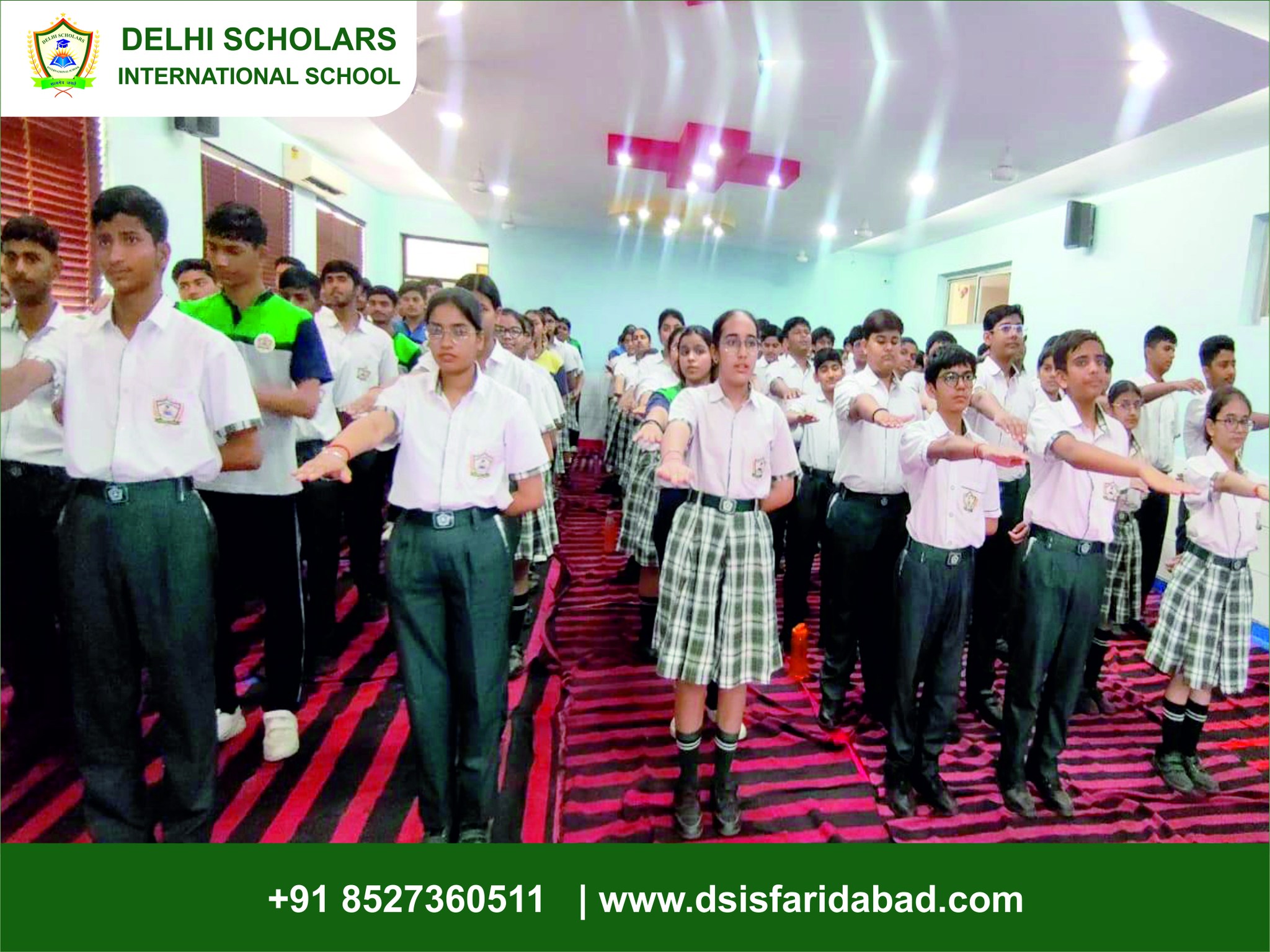
As a parent, choosing a curriculum for your child is one of your most important considerations. A child's academic curriculum balance should enhance their skills while simultaneously fostering their emotional, social, and creative domains. Today, a multitude of learning approaches along different educational boards has emerged. The information in this article will aid you in making a decision easier. Recognizing Your Child's Learning Style Every children learn in their own unique ways. Some children do well when given adhearing instructions, set guidelines or assessments, while others learn better with a more free-form and hands on approach. Take note of a cpild before choosing a curriculum: their particular skill sets, interests in subjects, and methods of achieving learning outcomes. Are they more logical? are they more artistic? Do they prefer to work individually or in groups? The answers to these questions will help you narrow down the right educational curriculum. Be aware of Popular Curricula Choices There are numerous popular curricula followed by schools in India and around the globe. Some of the most popular ones are: CBSE (Central Board of Secondary Education): Strives to enhance students scientific and mathematical skills while ensuring students, textbooks, and teachers aid the national entrance examination prep. ICSE (Indian Certificate of Secondary Education): Examines class 10 students without losing the balance between languages, arts and science. IB (International Baccalaureate): Considers inquiry-based learning with a global perspective along with critical thinking. Cambridge (IGCSE): International curriculum focusing on internationally accepted academic standards. Every curriculum has its advantages, but balance and understanding what each offers is pivotal in making a decision for your child. Think of the End in Mind Consider your child's future. If you plan for them to study outside the country, international versions like IB or Cambridge can offer more seamless transitions. While if they would likely sit for Indian competitive exams, CBSE would be more relevant. Sticking to a plan of fundamental education, career, or profession helps in determining which pathway will provide the most stability and direction. Analyze Faculty and School Facilities Curriculum is just one component of the framework. It is as equally important to consider how it is delivered. Search for schools that have a small student-teacher ratio, qualified staff, and modern infrastructure. Aside from these factors primary to your child's growth, active engagement in ancillary subjects and emotional wellbeing should receive equal attention. Take Feedback and Visit Schools Take note of how other parents feel and take school tours during orientation weeks. Conversations with educators and school leaders help you understand the details of curriculum implementation. These personal interactions also aid in appreciating the learning environment and culture. Balance Academics and Life Skills It is of utmost importance that the selected curriculum focuses on integrating academic achievement and soft skills such as communication, problem-solving, collaboration, and flexibility. They need to support the child in developing into a confident, curious, and fully capable person instead of someone who merely excels at standardized exams. Final Thoughts What is offered through the curriculum differs for every child, and this influences their educational journey greatly. With any curricula options you are evaluating, whether it is CBSE, IB, or even alternative Montessori and Waldorf schools, ensure you consider what is aligned with your child’s traits and preferences. For those searching for the top school in Faridabad, ensure that not only do they offer a rigorous academic program but also a curriculum designed to develop your child’s full potential.
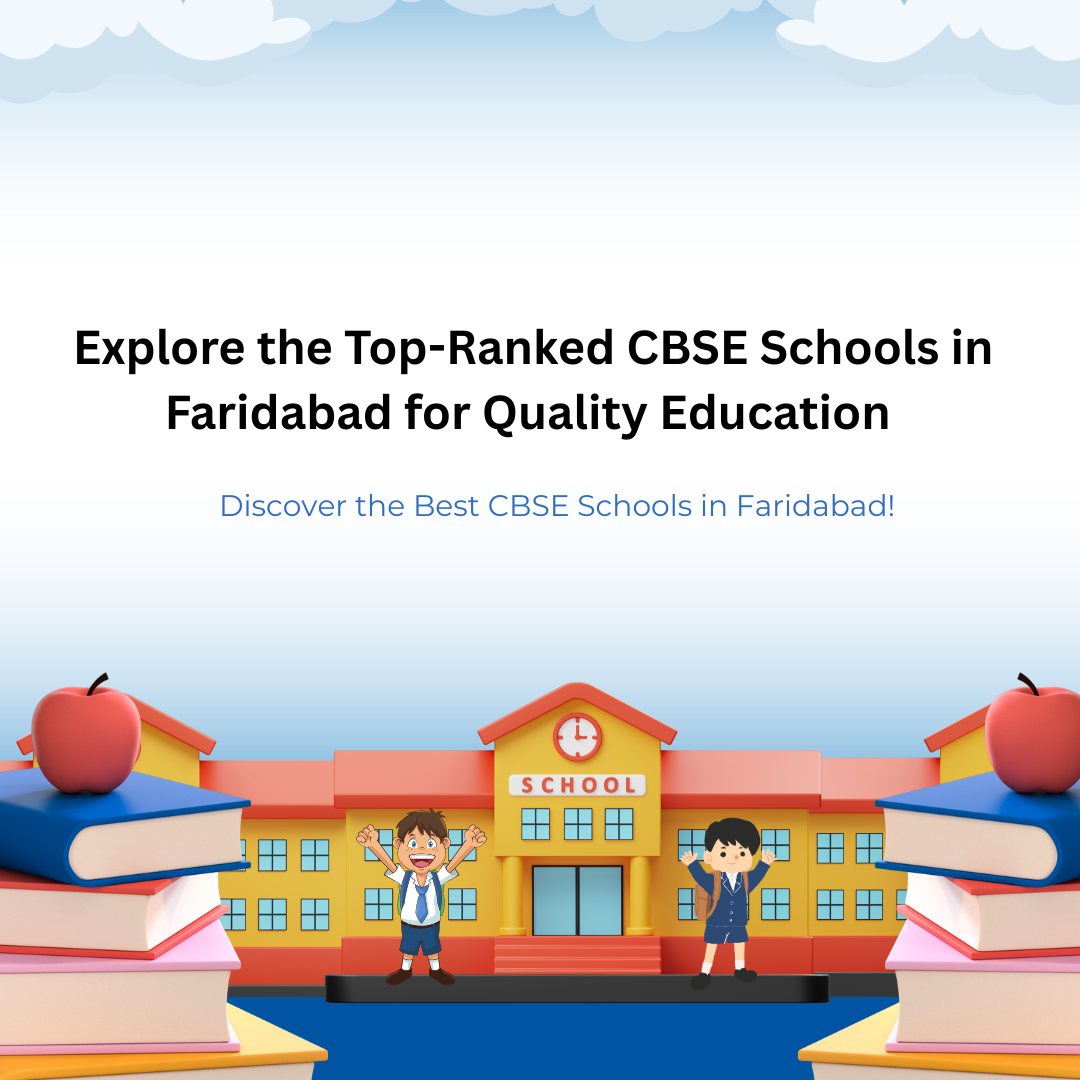
Outstanding academics and a robust emphasis on extracurricular activities, along with modern facilities, make Faridabad a city in Haryana best known for its CBSE affiliated schools. Students are provided with a holistic value-based education, enabling them to face the future and its challenges confidently. Given below is a curated list of best CBSE schools in Faridabad in 2025. Best CBSE Schools in Faridabad (2025) 1. Delhi Public School (DPS), Sector 19 Established: 1995 Highlights: First Faridabad DPS is equipped with hostels, and occupies an 8-acre campus where sports are an integral part of education. It further Kal espouses to solar energy and is focused on improving sustainability. Website: DPS Faridabad 2. Modern Vidya Niketan (MVN), Sector 17 Reputation: One of the best schools MVN from Faridabad is known for its sports and consistently strong CBSE board. Facilities: MVN’s smart sports infrastructure (gymnasiums, fields, labs) and modern educational facilities including smart classrooms, advanced science and computer labs are available to all its students. Website: MVN Education 3. Manav Rachna International School (MRIS), Sector 14 Curriculum: It is a recognized CBSE and International Baccalaureate school. Features: MRIS is the home of Technoplanet and Atal Tinkering Labs, a digital campus, and a Sports Academy for students. Website: MRIS 4. Eicher School, Sector 46 Established: 1994 Strengths: Eicher uses digital tools to teach, value-oriented teaching, and comprehensive curricula to meet diverse student needs. Website: Eicher School 5. Delhi Scholars International School (DSIS), Sector 88 Established: 2016 Overview: This is a co-educational institution with classes from Pre-Nursery to Class XII. It is managed by the Modern Vidya Mandir Society. Unique Features: The school includes the Delhi Scholars International Sports Academy, created in 2019 by Sh. Rajat Chauhan, an Arjuna Awardee, for the development of sports in the region. Website: DSIS Faridabad 6. Ryan International School, Sector 21B Focus: The school incorporates a blend of leadership skills, creativity, and a strong academic foundation in the curriculum. Unique Offerings: Ryan TV, student clubs, and comprehensive safety infrastructure. Website: Ryan International 7. DAV Public School, Sector 37 Legacy: A school from the DAV group, which is known for a blend of modern and traditional methods of teaching. Facilities: Science and computer labs, music and art rooms, and a gymnasium. Website: DAV Faridabad 8. Apeejay School, Sector 15 Established: One of the first schools in Faridabad. Highlights: Academic success, commitment to extracurricular activities, and modern school facilities. Website: Apeejay School 9. The Modern School, Sector 85 Founded: 1920 Reputation: A school known for its long history of accomplishment in academics and co-curricular activities. Facilities: Spacious campus, cutting-edge labs, and diverse student activities. Website: Modern School Faridabad 10. Holy Child Public School, Sector 29 Established: 1976 Approach: Emphasizes the combination of academic and cultural learning alongside moral development for comprehensive growth. Website: Holy Child Faridabad 📌 FAQS on CBSE Schools in Faridabad Q1. What is the average fee structure for CBSE schools in Faridabad? A: As per the infrastructure and facilities offered by the school, the annual fees vary. But on an average, it falls between ₹60,000 to ₹2,00,000. Premium institutions with advanced amenities tend to charge higher. Q2. When do most of the schools open admissions for these schools? A: The most CBSE schools in Faridabad open up admission forms between November to January for the upcoming session. Please do check the specific school website for the exact dates. Q3. Do these schools offer transport facility? A: Most of these schools do offer transport facility covering most parts of Faridabad and the adjoining regions. Q4: Are there boarding facilities available? A: In general, schools operate as daytime schools. Nonetheless, Delhi Public School, among others, offers hostel facilities. It's best to get in touch with the schools directly to gather pertinent information. Q5: How can I stay informed about a school's admission updates? A: For keeping up with the admission updates and new information from these schools, it is advised to follow their official websites with regular visits and also sign up for their newsletters. Responsible decision making regarding the selection of the school impacts a childs development and growth profoundly. With an aim to provide an integrated approach to education with the values and culture of India, Top CBSE Schools in faridabad prepare the students for dealing with the challenges of the ever-changing world.

As a parent, one of the most monumental decisions one has to take is searching for an appropriate school for their child. Out of so many, one particular place needs to be Faridabad, where the educational standards have seen growths over the years. You can find a range of options, from century-old schools to new age schools equipped with modern technology. Here, in this guide, we aim to provide you with tips on how to choose a really good school for your child. What makes a school exemplary? Exceptional schools do not rely upon academic results alone, to rate their performance, as they go above and beyond. Creativity is nurtured, curiosity is encouraged, and character is built. Out of any institution, these are the most important qualities they need to have: 1. Academic Excellence For great schools, a strong academic foundation is expected. They should be consistent with a track record of board results, experienced faculty and Class sizes should enable individual attention from teachers, who are required to teach using innovative methodologies, while also promoting knowledge over rote memorization. Students should be encouraged to think critically instead of preparing the same textbook answers for exams. 2. Holistic Development Yet another reason why we make the claim for the greatest school in the world is that they focus on all round development, placing great importance in extracurricular activities including sports, community service and art. All of these mark as important opportunities for discovering hidden talents and building self confidence. 3. World-Class Infrastructure Faridabad's top schools provide their pupils with exceptional infrastructure, including smart classrooms, dedicated science and computer labs, libraries, sports complexes, and efficient transport services. Integrating a well-designed campus enhances safety, engagement, and nurturing environments where children are eager to learn. 4. Focus on Emotional and Mental Well-being At this time, mental health and emotional intelligence are vital to focus on. Counselorship and life skills workshops are crucial. Find institutions that promote empathic, inclusive, and respectful environments. 5. Technology Integration Technology is a must in modern education. Forward-thinking schools are adopting digital platforms alongside robotics and coding classes, ensuring students are well-versed in AI-powered learning tools. How to Choose the Right School for Your Child? No two children are the same; hence the best school for your child is one that matches their learning approach, interests, and requirements. To assist in the selection process, consider these suggestions: • Come in for a campus visit and meet the faculty. • Examine safety measures and student-teacher ratios. • Consult other parents and check online reviews. • Review the school's extra-curricular activities. • Understand the fee structure alongside other additional costs. When assessing all these attributes, a good fraction of parents come across a few exemplary schools that integrate all these features — strong academics, modern facilities, holistic development, and a caring atmosphere. One such institution is often remarked by parents as the best school in Faridabad owing to it being an epitome of excellence and success. Frequently Asked Questions (FAQs) Q1. Which are the most commonly followed curriculum in Faridabad? Most of the prominent schools in Faridabad adhere to CBSE curriculum, Some also provide ICSE, IB, or Cambridge options for international exposure. Q2. What are the ideal student-teacher ratio in good school? An ideal ratio would be 25:1 or lower. This ensures that the teacher is able to provide personal attention to all students. Q3. How critical are extracurricular activities? They are extremely important. They foster the development of discipline, creativity, leadership, and teamwork among students. Q4. Are there career counseling services offered by schools in Faridabad? Yes, many of the renowned schools offer career counseling and expert sessions starting from middle school along with aptitude testing. Q5. In what ways can parents monitor their child’s academic progress? A lot of schools have digital portals or apps through which parents can view attendance, academic performace, and receive alerts enabling them to monitor in real time. Concluding Remarks It is important to not just choose a brand but rather select a school where a student can nurture and enhance their skills. Faridabad has numerous schools which combine the traditional aspects of education with the modern requirements. Take some time to explore, make inquiries, and have faith in your gut feeling. With the right approach, they will be able to provide your child with appropriate education that molds them to be successful in life.

Selecting the proper school for your child is one of the most critical choices a parent will ever have to make. In a nation like India, where education is highly regarded and competition is extremely competitive, making the proper academic institution choice should involve serious consideration of a number of important factors. Whether you’re looking for the Best school in Faridabad or exploring options among the Top school in Faridabad, your choice should be guided by what’s best for your child’s academic, emotional, and social growth. Academic Excellence The core of an excellent school is its academic standing. Parents wish for schools with consistently high scores in board examinations and a rich, rigorous, and well-structured curriculum. The top-performing school in Faridabad would normally have well-educated teachers, modern course materials, and an innovative method of teaching to foster concept knowledge rather than mugging up facts. Inspect board marks, affiliations (CBSE, ICSE, IB, or State Board), and curriculum alignment to get an idea of the learning atmosphere. Overall Development Education is no longer about books and tests. A well-rounded development plan involves activities other than studies, sports, music, art, and life skills. While looking for the best school in Faridabad, look for schools with an integrated approach—where curriculum and co-curricular activities are accorded equal emphasis. This develops communication, leadership, creativity, and emotional quotient in children. Experienced and Empathetic Teachers The quality of teachers would be the most important one in determining a school in India. A good teacher doesn't just teach but also inspires and guides. Good schools in Faridabad have an extremely low ratio of students to a teacher, where each student receives special attention and care. Infrastructure and Facilities Present infrastructure is not a luxury but a requirement. Classrooms need proper ventilation with smart boards or helping digital devices. Libraries, laboratories, playgrounds, and activity rooms contribute tenfold to the overall learning process. Parents have to visit the campus to find out about safety, hygiene, and the facility availability that provides the overall growth of a child. Values and Culture A school must adopt the values and beliefs you would like to impart to your child. They are discipline, inclusiveness, respect for one another, and sensitivity to culture. A child spends the majority of his or her growing-up years at school; therefore, it's essential that the atmosphere is caring and cultivates moral growth. When choosing the best school in Faridabad, notice the way it balances academic achievement with value education. Parental Involvement The top schools possess a positive parent-school relationship. Communication, feedback mechanism, parent-teacher meetings, and participation in school events lead to higher awareness of a child's performance. Select a school that is receptive to parents' participation and keeps you posted on your child's progress. Commute and Proximity While intellectual excellence is to be cherished, pragmatism also counts. A school located far from your home can translate into much commuting time, which will tire your child and have less time to play/study. Opting for a high-profile school near your home in Faridabad can go a long way in making daily routines easier and enhancing punctuality and attendance of your child. Affordability and Transparency Charges on tuition, admission, and miscellaneous fees should be transparent and understandable. The education provided by the best school in Faridabad is worth paying without compromising on costs or amenities. Never compromise on unseen expenses and transparency about its fees. Final Thoughts: Selecting the right school in India is an earnest decision on academic merit, comprehensive development, security, values, and cost factor. As a parent, you hope for the best for the child. Maybe searching for Top school in Faridabad, making a point of touring campuses, consulting with faculty members and other parents, but most importantly, thinking about what best suits the individual child you know. A school that promotes curiosity, creates creativity and develops character surely will give the best possible groundwork for your child's life.
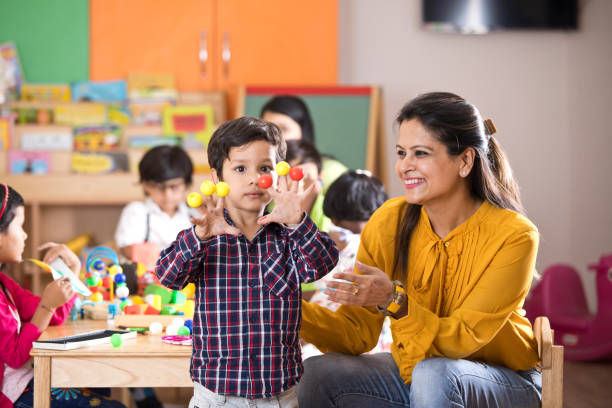
Parents involvement is of utmost importance in shaping a child's life during school time. A child's success in school is not just because of the quality of education provided by schools, but also because of how much interest parents take in participating in their lives. Regardless of whether it is the best Faridabad school your kid attends or whichever leading school in Faridabad your kid attends, your own contribution can go a long way towards helping your kid grow as a person. Cultivate Close Rapport with Teachers Among the initial steps parents can take is to be closely in touch with teachers. Through parent-teacher conferences, workshops, and school events, parents are in a position to receive crucial information about the child's performance, strength, and weakness. Being sensitive to asking questions and responding to them can form a smooth home-school connection that benefits the child. Create Home Surroundings Compliant to Studies The motivational home learning environment is as important as the school curriculum. Designate a separate room for your child to study, which will keep him or her away from distractions such as television or mobile phones. Provide the room with essential school stationery, and follow a routine including dedicated time for homework, reading, and playtime. This schedule encourages discipline and concentration, particularly when your child is learning in a good school in Faridabad that requires consistent academic performance. Cultivate Reading and Curiosity Reading is the key to learning. Parents can help their child by developing reading habits from early childhood. Go to libraries with them, read books according to their interest, and inculcate a reading habit daily. Also, show eagerness to your child's questions and inspire them to know more about things in which they are interested. This enhances critical thinking and learning attitude. Participate in School Activities Involvement in school activities like sports day, culture festival, or volunteer programs sends the message to children that learning is a community-based activity. All schools in Faridabad have facilities for parents' involvement in co-curricular activities and decision-making frameworks. Involvement in such activities not only keeps parents informed about the school culture but also boosts the morale of the child. Track Academic Performance and Attendance Stay informed regarding your child's academic performance, test scores, and school attendance. Utilize school portals and mobile apps to remain informed regarding assignments and grades on a regular basis. On-time attendance and consistent attendance at school are necessities, and parents should ensure that their child does not miss crucial classroom interactions. Top school in Faridabad generally have mechanisms for providing feedback, thus allowing parents to remain informed regarding themselves. Enhance Emotional and Mental Well-being Scholarship has close relation with emotional intelligence. Practice to be a good listener, empathize with your child, and teach him or her to manage stressful situations such as exam stress or problems in school. If necessary, approach the professional through the school counselor. A student enrolled in one of the top schools in Faridabad may have competitive stress, and therefore parental emotional support may prove vital. Be a Role Model Kids imitate their parents. Demonstrate to them the value of learning by continuing to learn yourself — reading, taking seminars, or watching world news. Having a positive attitude towards school and learning reinforces their worth in the child's mind. Set Realistic Expectations Encourage your child to perform to the best of their abilities but do not pressure them excessively. Reward effort and not outcome. Give small victories and give positive feedback wherever necessary. All-round development is what the top schools of Faridabad practice, and your encouragement too should have the same mantra. Conclusion: Parental participation is a strong instrument that can significantly impact a child's academic as well as personal development. Whether your child is studying in the best school of Faridabad or in any other top school of Faridabad with a good name, your active involvement can lay the basis for a lifetime of learning. From home support to active school involvement, your participation gives a single message that learning is important and that your child's success is not a private goal but a community one.

Getting your child admitted to the best school is one of the greatest highlights of any parent. With growing competition and increasing standards, getting your child admitted through a school entrance test coaching is more crucial now than ever before. If you are targeting the best school in Faridabad, it will make a big difference to plan the scenario strategically and in an organized way. Following are some helpful tips on how to prepare your child for the school admission test. Know the Admission Criteria Each school has its own choice criteria. Begin by checking the official website or calling the administration of the top school in Faridabad you are aiming at. Know what subjects the admission test is going to cover—typically tested subjects are English, Mathematics, General Knowledge, and basic reasoning ability. The schools may also screen communication skills and emotional readiness with an interview. Knowing what the child is to expect will prepare them in advance. Create a Study Plan Now that you have a picture of the syllabus, plan your studies. Plan your daily goals in each subject and leave time for practice and revision. Ensure that the learning in the classroom is supplemented by enjoyment activities, so your child stays motivated. For the younger kids, make sessions short (20–30 minutes) and resort to visual aids, games, and stories while teaching concepts. The older children could have a more formalized routine with model tests and irregular practice sheets. Concentrate on Conceptual Learning Rote memorization seldom pays in school admission exams. The top schools in Faridabad test the child's ability to grasp basic ideas rather than the quantity of material they can memorize. Invest time in making your child grasp easy maths calculations, sentence formation, reading, and logic. Engage learning by associating it with day-to-day life—adding fruits, recognizing colors, or reading tiny storybooks together. Promote Reading and Listening Skills Adequate communication skills are very important, particularly if the admission requires an interview. Ask your child to read children's picture books, listen to educational audio books, or view age-related educational videos. Assist them as well by requesting them to recount their day, discuss their hobbies, or describe a story they have read. This enhances confidence and enhances vocabulary as well as fluency. Practice Mock Tests Mock tests emulate the actual test scenario and get your child used to the time limit of the test. Purchase admission test practice books or simply download sample question papers from websites of the prominent Faridabad schools. Sit with your child and go over the solutions immediately after every test and see where he/she's lacking and teach them again for that subject matter. Promote Inquiry and Learning Kids learn best when they're naturally curious. Utilize everyday life to stimulate your child's curiosity. Bring them to the park, museum, or outside into nature—ask questions such as, "Why do leaves fall off?" or "How does rain occur?" This not only contributes to their overall knowledge but also enables them to observe and think critically, which is crucial for school acceptance. Prepare Emotionally It's understandable that children may be anxious about tests or interviews. Prepare them psychologically by informing them about the test and engaging in mindfulness or breathing exercises with them. Inform them that it's fine to make errors and that the idea is to try their best. Role-playing of interview scenarios can be a fine method of ensuring nervousness disappears and instilling confidence. Selecting the Correct School Finally, opt for a school that best accommodates your child's strength and area of study. If you seek a school with good academics, sports complex, or complete development, there are high-profile schools in Faridabad to suit your desire. Find out the best Faridabad school with a happy and caring atmosphere that aids in personal growth. Visit campus locations, speak to teachers, and gather reviews prior to making your choice. Final Thoughts: Preparing your child to take a school entrance test is a balance between academic preparation, emotional support, and encouragement. Begin early, remain consistent, and above all, make it a positive, stress-free experience. Keep in mind, when it comes to a top school in Faridabad, it's not merely a matter of cracking the test but also about a spot where your child can shine. With a proper guide and approach, your child will be confident to take the giant leap ahead.
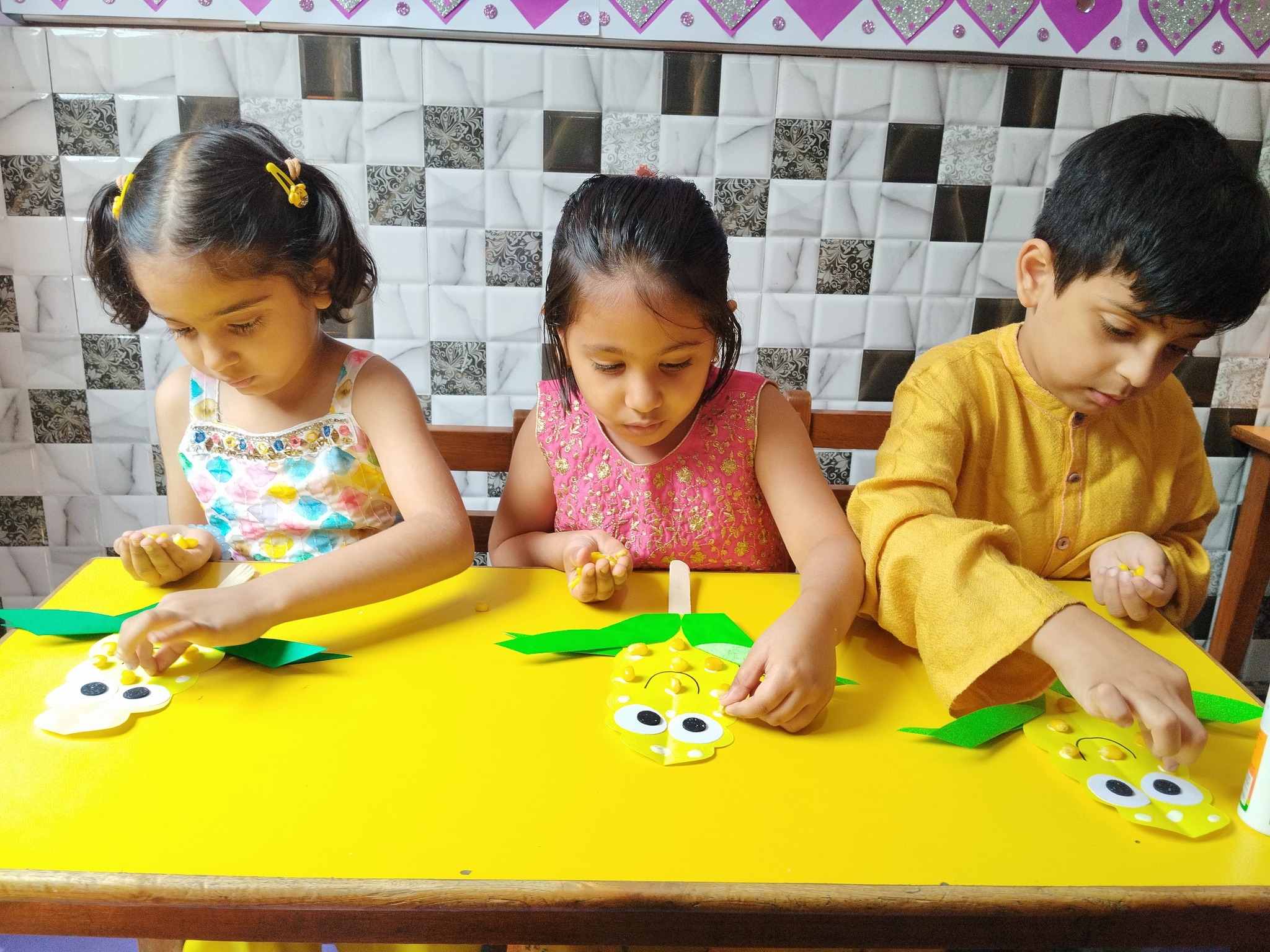
The first day at primary school is a major landmark in your child's life. It marks the beginning of his or her education and can be an exciting and daunting experience for children and their parents. You, as a parent, need your child to feel confident, excited, and ready to venture into this new experience. If you prepare well, you will be in a position to make your child comfortable and prepared to encounter this specific day. This is how you prepare your child for the first day of school. Begin Early with the Routine One of the best methods of preparing a child for school is by beginning to acclimate your child to school routines far in advance of the first day. A week or so before the opening of school, wake them up and prepare them at the time they need to report to school. This helps your child adjust to the routine and not be woken up by the early morning calls. A routine bedtime also allows your child to sleep sufficiently, which is important for their mood and energy level on the first day. Explain What to Expect Discuss with your child what they will be doing on the first day at school. Let them know about the school, their classroom, and teachers. Describe it positively by mentioning the fun things that they will be doing at school, such as making new friends, playing with toys, and learning exciting things. It is important to discuss school in a positive light so that your child will eagerly want to attend school instead of feeling apprehensive. You can also attempt to make them less nervous by informing them about some of the things they will not know, like taking the school bus, eating lunch in the cafeteria, or being in the classroom. Assure them it's alright to feel nervous and that everyone feels the same when they start something new. Go to the School Early If possible, go to school with your child on the first day. The majority of schools, including the Best School of Faridabad, organize an orientation session or take them around the school. This acclimatizes your child to school, is a greeting with some of the teachers, and recognizes with them where they would study and play. If the school is not organizing an orientation program, attempt to visit the school together and walk around. In this way, your child will be able to understand what he/she has to do once he/she gets in through the doors for the very first time. It provides him/her with the opportunity to catch a glimpse of some of the other kids who will also be in his/her class. Pack Together Engage your child in packing their school bag. Allow them to select what school supplies they would like to carry, like a backpack, lunchbox, or water bottle. This makes them feel involved and eager to be a student. Ensure that they understand how to pack and unpack the bag so that they can feel independent and confident. When getting dressed up for school or school uniform, let your child pick their attire for the day. Even choosing socks or which top to put on makes your child feel like they are in on things and in charge. Conclusion: The first day of primary school is an important one in your child's life, and preparing emotionally, mentally, and physically may make the first day easy to do. By starting early, fostering positive emotions, and making the day fun, your child will feel ready for this exciting new chapter. If you’re looking for the Best School in Faridabad, be sure to choose a school that offers the right support and a nurturing environment for your child’s growth and development. Be it the Top School in Faridabad or any other top school in that league, the top school will make sure that your child's initial school days are kicked off with enthusiasm and confidence.
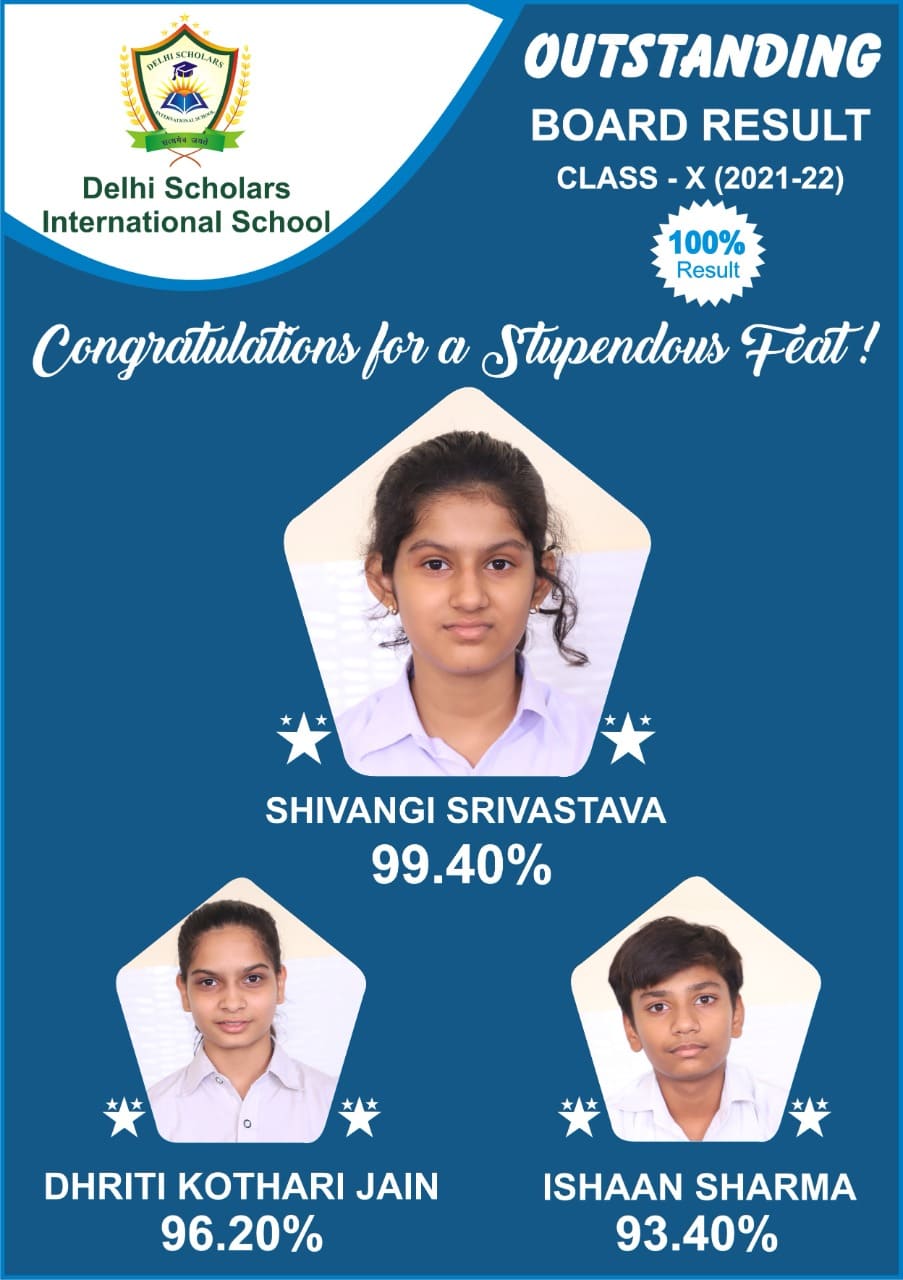
Proud moment for Best School in Faridabad DSIS It’s a Carpe Diem moment for the first batch of Grade-X of Delhi Scholars International School which showcased a stellar performance by giving 100% result in the first shot.

Healthy Mind, Bright Future: The Importance of Mental Health in Education Mental health plays a key role in the success of any individual. This is especially true for students who are in the midst of their education. The importance of mental health in education should never be overlooked, as it can have a major impact on a student's academic performance and overall well-being. In this blog post, we will discuss the importance of mental health in education, and how it can be used to create a healthy and productive environment for students to thrive in. We will also explore the various strategies that can be employed to promote mental health in the classroom and beyond. What is Mental Health? Mental health refers to a person's emotional, psychological, and social well-being. It encompasses how individuals think, feel, and act and influences how they handle stress, relate to others and make choices. Mental health is just as important as physical health and plays a crucial role in education. It affects a student's ability to learn, cope with challenges and achieve their full potential. Understanding and promoting mental health in education is essential for creating a supportive and nurturing environment that empowers students to thrive academically and personally. The Impact of Mental Health on Education Mental health has a profound impact on education. When students are struggling with mental health issues, their ability to focus, concentrate, and retain information is compromised. This can lead to poor academic performance, increased absenteeism and even dropout rates. Additionally, mental health challenges can affect student’s social interactions and overall well-being, making it difficult for them to fully engage in the educational experience. It is crucial for educators and school administrators to recognize the impact of mental health on education and prioritize creating a supportive and inclusive environment that addresses these challenges head-on. The Importance of Mental Health Awareness in Schools Mental health awareness in schools is of utmost importance. It is crucial for educators, administrators and students to have a deep understanding of mental health and its impact on education. By promoting awareness, schools can break down the stigma surrounding mental health and create a safe and inclusive environment where students feel comfortable seeking support. When schools prioritize mental health awareness, they can foster a culture of compassion and empathy. This ultimately helps students thrive academically and emotionally, setting them up for a brighter future. Strategies for Promoting Mental Health in Schools Implementing effective strategies for promoting mental health in schools is essential for creating a supportive and nurturing environment. Some strategies include integrating mental health education into the curriculum, providing access to mental health resources and support services, fostering a positive and inclusive school culture, and promoting stress management and self-care practices. Additionally, creating opportunities for students to connect with their peers, participate in extracuricular activities and engage in mindfulness exercises can also contribute to their overall well-being. By implementing these strategies, schools can create an environment that supports the mental health of their students and empowers them to thrive academically and personally. The Role of Teachers and School Staff in Supporting Mental Health Teachers and school staff play a crucial role in supporting the mental health of students. Since, they are on the frontlines interacting with students on a daily basis, they can often be the first to notice signs of distress. By creating a safe and supportive environment, teachers and school staff can help students feel comfortable and supported. This includes implementing mental health education, providing resources and support and promoting open and non-judgmental communication. By actively addressing the mental health needs of students, teachers and school staff can contribute to their overall well-being and academic success. How Students Can Take Control of Their Mental Health Students have the power to take control of their mental health and prioritize their well-being. They can start by recognizing their own emotions and seeking help when needed. This can involve reaching out to trusted friends, family members or school counsellors. Students can also practice self-care activities such as exercising, getting enough sleep, and engaging in hobbies they enjoy. Learning stress management techniques and practicing mindfulness can also be beneficial. Taking small steps towards self-care and seeking support can go a long way in maintaining and improving mental health.

The Importance of Mental Health in Education It's no secret that a successful academic career requires hard work and dedication. But it is also important to recognize the importance of study life balance. In this blog post, we will discuss how to achieve a successful study life balance, so that you can also find time to relax and enjoy life. With the right balance, you can lead a more productive and fulfilling academic experience. Why study life balance is important Achieving a study life balance is crucial for both, your academic and personal well-being. When you dedicate all your time and energy solely to academics, you run the risk of burning out and losing motivation. On the other hand, if you prioritize fun activities and neglect your studies, you may fall behind and not reach your full potential. A study life balance allows you to excel in both academics and personal life. By finding a healthy balance between studying and other activities such as sports, you can enhance your overall performance. Engaging in sports or other physical activities not only improves your physical health but also boosts your mental well-being and productivity. The risks of neglecting study life balance Neglecting study life balance means missing out on the benefits of engaging in activities outside of academics, such as sports. Sports not only contribute to physical health, but it also improves mental well-being and provides a much-needed break from studies. Ultimately, it can also hinder your ability to excel academically and leads to an unhealthy and unfulfilling academic experience. Not finding a Study life balance can make you miss out on cool stuff like playing sports. Sports aren't just good for your body, they also make your mind happy and give you a break from schoolwork. If you only focus on studies all the time, it can make you really tired and stressed. That's not good for doing well in schools. It will make school no fun. So, it's important to have a balance. Play sports or involve in extra-currricular activities. It's not just about being healthy, it's about feeling good and doing better in school. Tips for achieving study life balance Achieving a study life balance is easier said than done, but with some tips and strategies, it can be accomplished. First, create a schedule or plan that allows for dedicated study time as well as breaks for relaxation and fun activities. This will help you stay organized and ensure that you are devoting enough time to your studies without neglecting other aspects of your life. Additionally, prioritize self-care by getting enough sleep, eating healthy meals and exercising regularly. Taking care of your physical and mental health will ultimately contribute to your academic success. Lastly, learn to say no to excessive commitments or obligations that may interfere with your study life balance. It's important to set boundaries and prioritize your own well-being. With these tips in mind, you can achieve a successful study life balance and excel academically while still enjoying your personal life. Finding time for relaxation and extra curricular activities is an essential part of achieving a study life balance. It's important to schedule breaks and allocate time for activities that bring you joy and help you unwind. Whether it's hanging out with friends, watching a movie or indulging in a hobby, these activities can recharge your energy and boost your motivation for studying. Additionally, making time for relaxation and fun activities allows you to reduce stress and improve your overall well-being. It's not just about studying all the time; it's about enjoying life and finding a sense of fulfilment outside of academics. So, make it a priority to create a schedule that includes time for relaxation and fun activities, and you'll find that it enhances your academic experience. Examples of successful study life balance routines Now that we've discussed the importance of study life balance and the risks of neglecting it, let's look at some examples of successful study life balance routines. Remember, everyone's routine will be different, so it's important to find what works best for you. One example of a successful study life balance routine is dedicating specific hours of the day for studying and sticking to it. This can help you create a consistent study schedule while also allowing for breaks and time for other activities. Another example is setting realistic goals for each study session and rewarding yourself after achieving them. This can help keep you motivated and give you something to look forward to. Some students find it helpful to incorporate physical activity into their study routine. Taking breaks for a quick workout or going for a walk can boost energy levels and improve focus when you return to studying. Others find that scheduling regular social activities, like meeting friends for dinner or joining a club, helps them stay connected and provides a much-needed break from studying. Remember, achieving study life balance is a personal journey. Take the time to experiment and find the routine that works best for you. And don't forget to be flexible and make adjustments as needed.